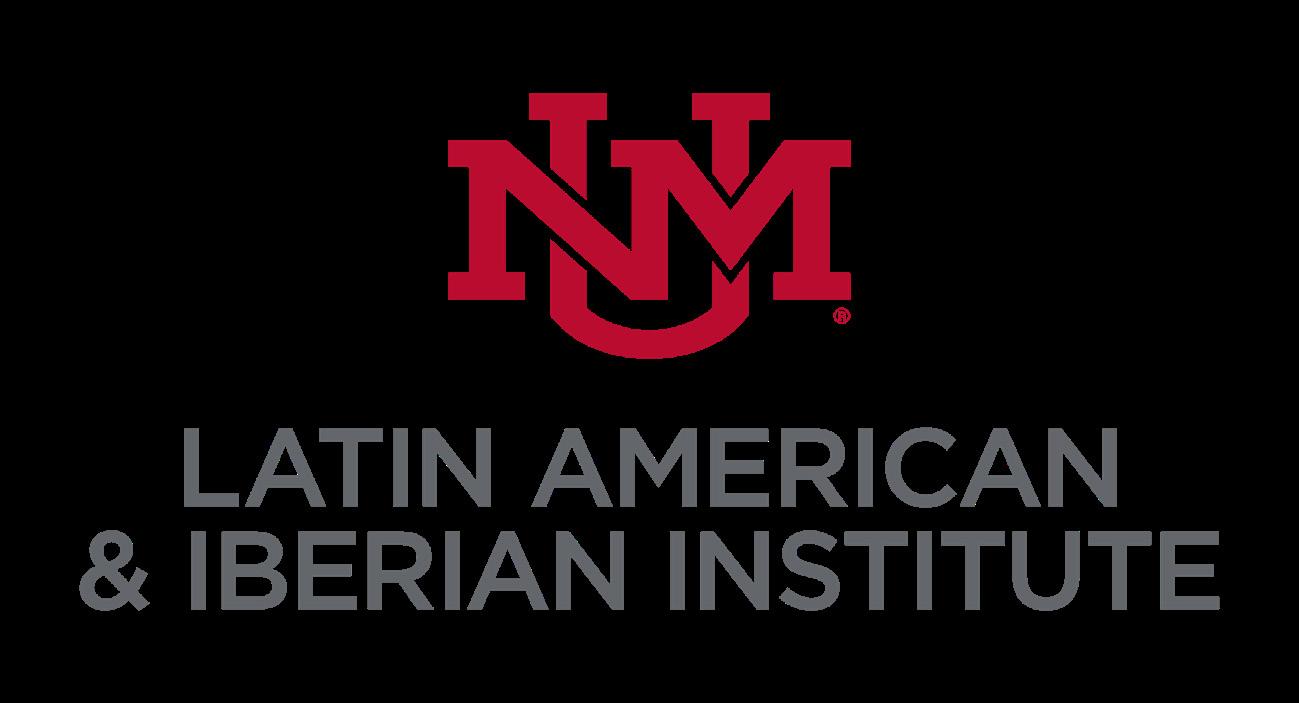






Dear Friends,
I am delighted to share with you the Latin and Iberian Institute’s 20232024 Annual Report.
In the pages ahead you will learn about the tremendous impact LAII and our extended community has had on campus and off. Working with our partners we sponsored or co-sponsored over 110 events including academic and public talks, performances, and workshops for K-12 educators and students. Campus and community members learned about the 50th anniversary of the military coup in Chile and its consequences (pp. 24-25), cooking in Nahuatl (pp. 20-21), Indigenous rights in Patagonia (pp. 26-27), and language and culture in Brazil (p. 23), while LAII’s K-12 program shared information on Latin American history, culture, and literature with educators and students (p. 29-30).
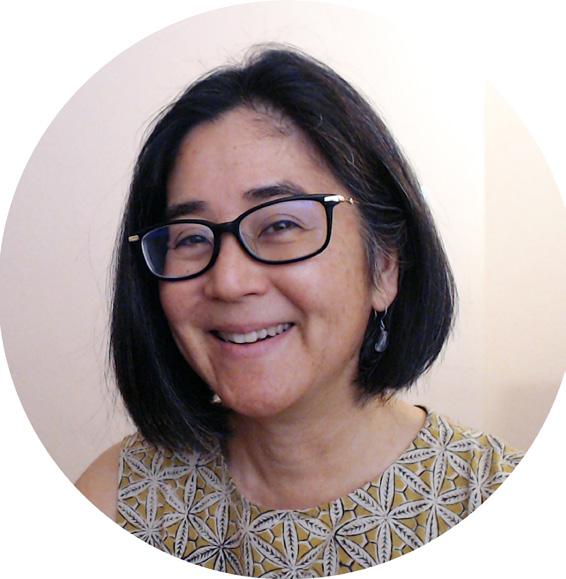
Among other accomplishments, LAII affiliated faculty developed and taught new courses on timely topics such as immigration and the law (p. 7), mentored student research in Peru (p. 18), created community-engaged study abroad experiences in Brazil and Guatemala (p. 19 and 22), and wrote books on topics ranging from the ancient Maya, to violence along the US-Mexico border, to Benjamin Franklin in the archives of Spain, to transgressive economies in Paraguay (pp. 14-15). With support from the LAII, students from Latin American Studies and other disciplines carried out field research in Latin America, (pp. 11, 16-18), wrote their dissertations, and studied Indigenous Latin American languages and Portuguese (pp. 11, 16-18, 20-21, 23). They also published books (p. 32), gave public talks at Central New Mexico Community College (CNM; p. 23) and applied their Latin American Studies training out in the world (p. 31).
All this was made possible through U.S. Department of Education grants to the LAII, including a four-year Foreign Language and Area Studies (FLAS) grant and a three-year Undergraduate International Studies and Foreign Languages (UISFL) award, funding from the UNM Office of the Provost, and generous gifts from donors such as LAS PhD alumnus Larry Larrichio and his wife, Alida Davila-Larrichio, who established a scholarship for LAS graduate students (p. 12). A recurring gift from the Guadalupe Institute – Western Hemisphere Center has supported the participation of scholars from Latin America in a range of events that promote respectful interhemispheric dialogue. Finally, Emeritus Curator of Latin American and Iberian Collections at UNM, Russ Davidson, created an endowed bequest gift of $100,000 to establish the Joaquín Ortega Founder’s Endowment for US-Latin American Dialogue, which acknowledges Joaquín Ortega’s contributions to Latin American studies at UNM, including his creation of UNM’s School of Interamerican Affairs, the predecessor of the LAII. The fund will support visits to UNM by scholars, performers, professionals, and others to engage in dialogue with communities at UNM and beyond. We are honored and humbled by the support of our donors, the university, and all of you.
If you are a UNM alum who has benefited from LAII support in the past, please get in touch! We would love to know how you are doing. And to those in the UNM area, we hope to see you soon at an LAII event!
Warm regards, Frances

Photo by Dr. Michael Ryan
Hayashida
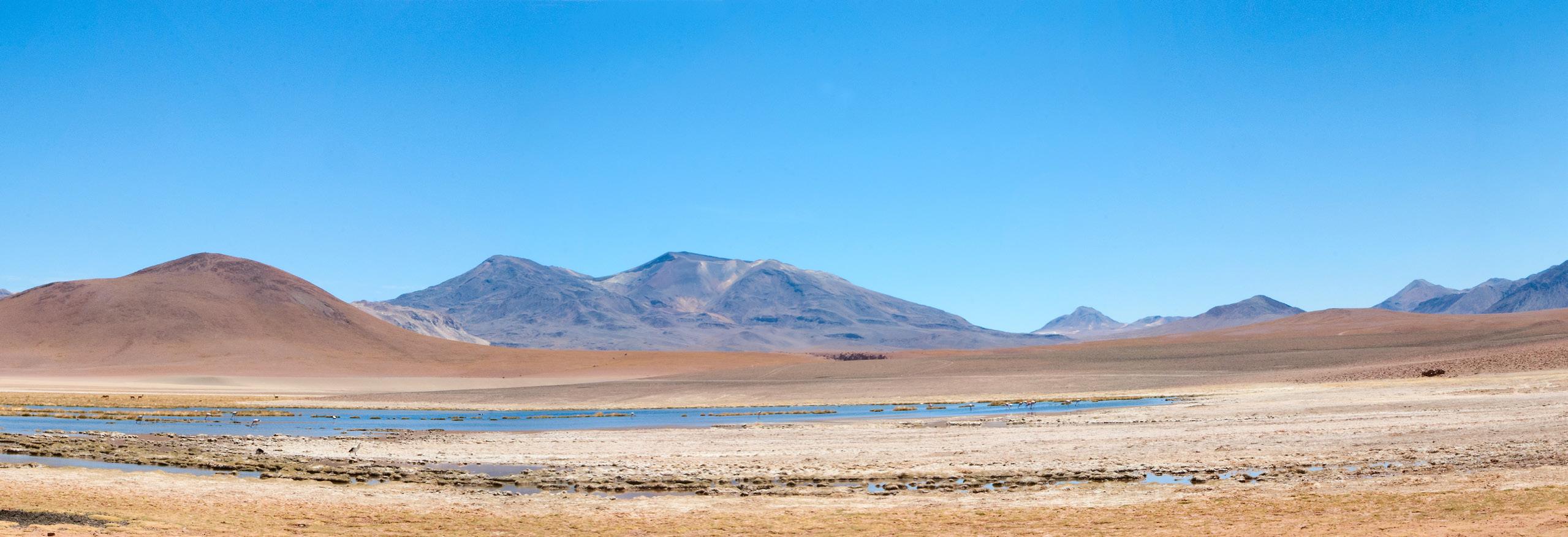
117 events
20 unm cosponsors and partners
6174 attendees
15 community cosponsors and partners
21 fellowships awarded >$630,000 in awarded funds
The Latin American and Iberian Institute (LAII) at UNM is dedicated to advancing research and education on the cultures, languages, history, and societies of Latin America and the Iberian Peninsula. The institute actively collaborates with partners, including Central New Mexico Community College, K-12 schools, the National Hispanic Cultural Center, Instituto Cervantes, and various community organizations, to share UNM’s expertise and resources.
LAII’s efforts are sustained and bolstered by UNM’s community of scholars whose research centers on Mexico, Central America, South America, the Spanish speaking Caribbean, Spain, and Portugal. Over one hundred and twenty faculty members at UNM conduct research and/or teach on these regions, representing a wide range of disciplines, interests, and approaches. The Institute facilitates this scholarship, provides a focal point for interdisciplinary discussions, and distributes resources to seed new research projects for faculty and their students. Drawing on university resources, and in partnership with outside funders, LAII helps departments recruit highly qualified faculty and students, and enables students to acquire new languages, conduct field research, and complete their degrees efficiently.
The origins of the LAII date back to 1941 with the establishment of the School of Inter-American Affairs under the leadership of Professor Joaquín Ortega. From the outset, UNM’s Latin America initiatives stressed community engagement within New Mexico and beyond. Today, this takes the form of helping K-12 teachers in the state bring Latin American cultural, language, and social studies content to their classrooms across grade levels. In 2023-2024, LAII held nineteen K-12 events reaching 1,277 teachers, students, and community members. Additionally, the institute produced curriculum materials that are accessible on our website to teachers nationwide. Community engagement also stands out in the work of many affiliated faculty and students, who work on vital issues ranging from migration to food production to language preservation.
ExEcutivE committEE
Andreas Hernandez, President
Tobias Fischer, Vice President
Margaret Jackson, Secretary
Paul Figueroa
Susana Martínez Guillem
Adriana Molina Garzón
Douglas Thomas
Allison Borden
Margie Montañez
Sandro Espinosa y Mann,
Kathryn McKnight, Ex Officio
Lenny Ureña Valerio, Ex Officio
Frances Hayashida, Ex Officio
Grants & awards committEE
Frances Hayashida, Chair
Marsella Macias
Les Field
M’bewe Escobar
Miriam Gay-Antaki
Enrique Sanabria
Jami Nelson-Nuñez
José Luis Hurtado
Ray Hernández Durán
Kathryn McKnight
icLas
Kathryn McKnight, Chair
Doris Careaga-Coleman
Kency Cornejo
Mariana Sabino Salazar
Kimberly Gauderman
Jennifer Moore
Jami Nelson-Nuñez
Suzanne Oakdale
Leonel Martín
Frances Hayashida, Ex Officio
opErations
Mike Ryan
Gisselle Salgado
Doris Careaga-Coleman
Heather Edgar
Douglas Thomas
Miguel López
Jessica Carey-Web
Sylvia Johnson
The University of New Mexico’s Latin American Studies (LAS) program is a nationally prominent, competitive, interdisciplinary program that offers BA, MA, and PhD degrees. Latin American Studies at UNM is regarded as one of the best LAS programs in the U.S., pulling together 100+ faculty members from over 30 departments across campus to allow students to build a program of study that fits their interests and future career goals. Students in the BA and MA programs choose one of six interdisciplinary concentrations:
• Arts, Literature, & Cultural Studies
• Conflict, Peace, & Rights
• Environmental Governance & Resilience
• History & Society
• Indigeneity in the Americas
• Markets & Development
MA students may also complete a dual degree that combines the MA in Latin American Studies (MALAS) with a master’s program in Community and Regional Planning (CRP); Language, Literacy and Sociocultural Studies (LLSS); Law; or Public Health. Students in the PhD program combine two disciplinary concentrations chosen from eleven departments across the College of Arts & Sciences, the College of Fine Arts, the School of Architecture & Planning, and the School of Medicine.
Latin American Studies courses are available through various departments and programs across the UNM campus. Each semester, both undergraduate and graduate students can select from an extensive number of courses that utilize interdisciplinary perspectives to investigate critical issues relevant to Latin America, the broader hemisphere, and global contexts. These courses cover a wide range of subjects, including the arts, culture, history, human rights, environmental governance and resilience, as well as economic development. Through their studies, LAS students develop a diverse set of skills that prepares them for careers in education, government, the private sector, and nonprofit organizations.
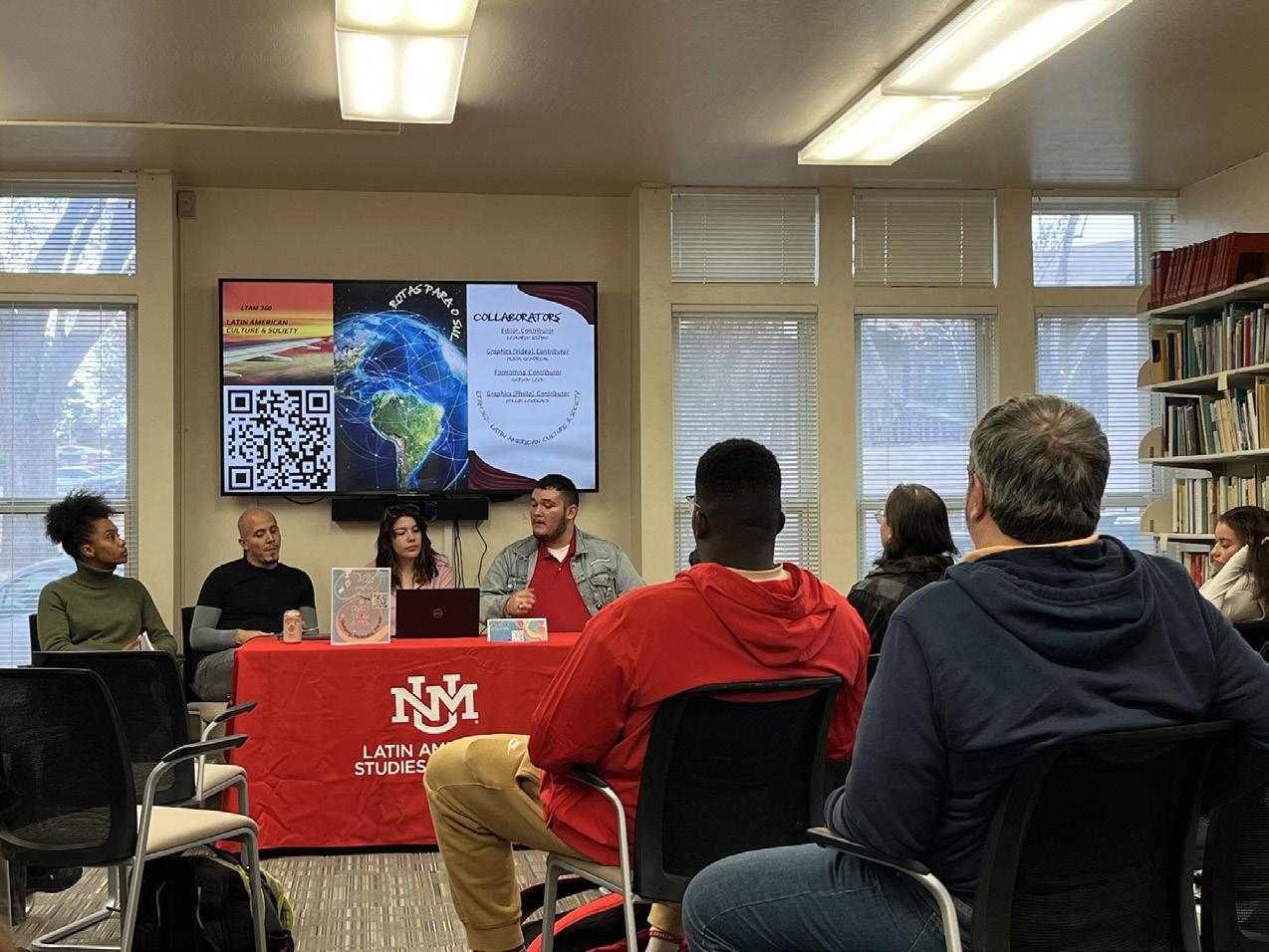
With support from the Title VI Undergraduate International Studies and Foreign Language (UISFL) Grant provided by the US Department of Education, three professors were awarded funding to develop new courses in Latin American Studies. One of the awardees was Dr. Kimberly Gauderman, an LAII Affiliated Faculty who developed and taught Latin American Immigrant Journeys and the Law for the first time in Spring 2024. Twenty undergraduate and six graduate students were enrolled in the course.
she navigated a lesson on modern Peru and the status of LGBTQ+ People. As an expert witness herself, Dr. Gauderman focuses on gender and sexuality-based violence, one of the conditions that causes people to immigrate and seek asylum. Leading a course with difficult and traumatic topics requires awareness and support, something Dr. Gauderman prioritized throughout the semester.
After eight weeks of case studies on country conditions, the course began
“There’s a lot of harshness in history. That’s the reality. If we’re going to take students on that journey, we need to make sure they are safe.” -Dr. Kimberly Gauderman
Based on her own experience as an expert witness in asylum cases, Dr. Gauderman was able to bring her community-engaged scholarship to the classroom in the form of a lecture course that sought to provide a cultural and historical context to current debates over immigration reform, integration, and citizenship in the context of Latin America and the U.S. The course began with an exploration of country conditions through the lens of specific social sectors in Latin America. In other words, what causes people from certain social sectors to flee their home countries? Rather than a sweeping overview of country conditions in Latin America, Dr. Gauderman focused on specific populations in specific regions. For example, while studying Peru,
to explore the actual act of migrating to the U.S. and the immigration and asylum policies in place upon arrival. Dr. Gauderman partnered with the New Mexico Immigrant Law Center and filmmaker J.C. Ramírez to ensure full understanding of the immigration process, from the role of U.S. border enforcement and its effects in Mexico and Central America, to detention centers here in New Mexico. This course coincided perfectly with Dr. Gauderman’s newest book Practicing Asylum, which was published in 2023. Dr. Gauderman’s commitment to communityengaged scholarship was recognized at an institutional level when she was awarded the 2024 Annual Community Engaged Research Lecture Award.
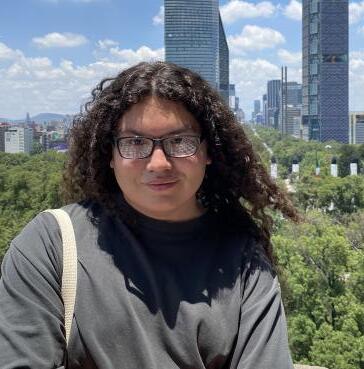
Mark Campbell MALAS
Concentration: History & Society
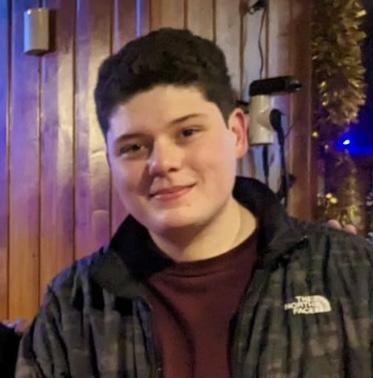
Sebastian Cardenas MALAS
Concentration: Indigeneity in the Americas
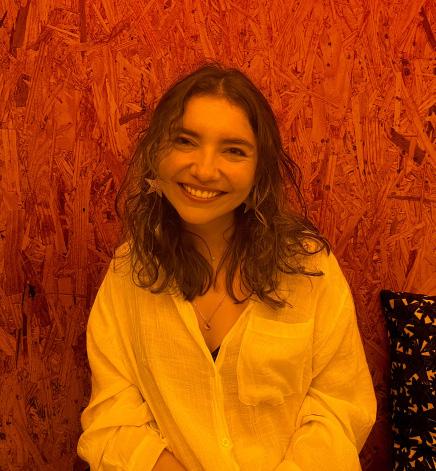
Daniela Galvis Garzón MALAS
Concentration: Conflict, Peace & Rights
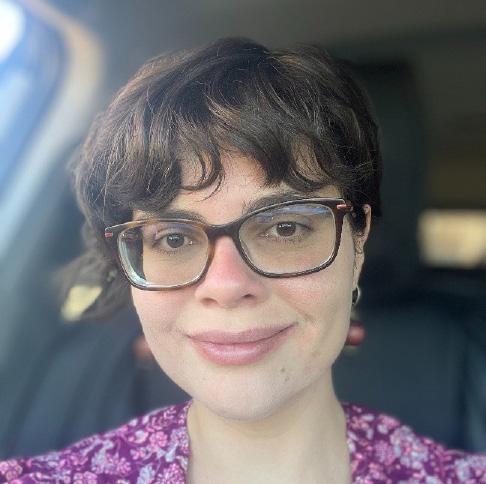
Jéssica Pereira dos Santos MALAS
Concentration: History & Society
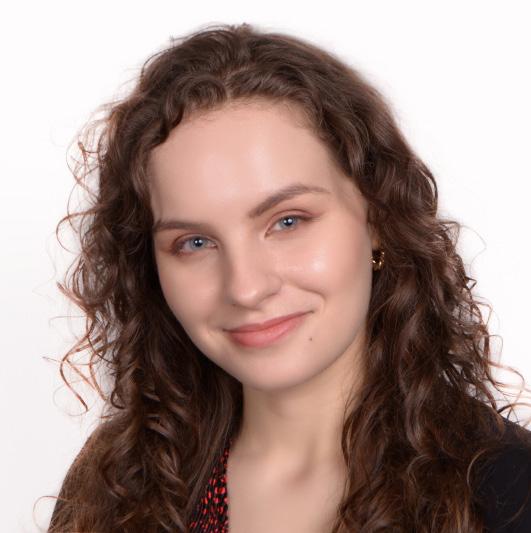
Madeline Griffin MALAS
Concentration: Conflict, Peace & Rights
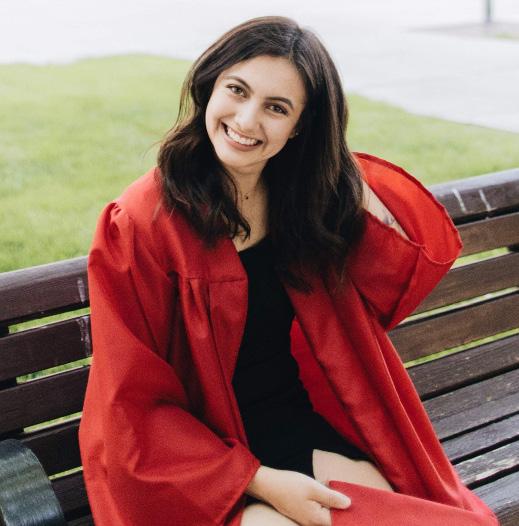
Isela Rendón MALAS
Concentration: Conflict, Peace & Rights
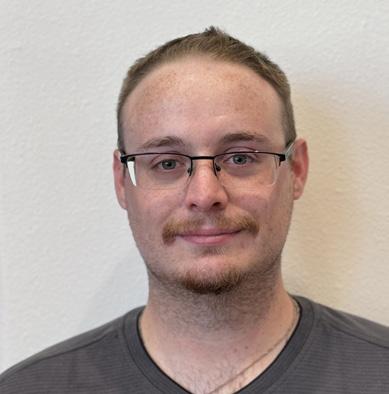
Cory Mason (MALAS/JD)
Concentration: Environmental Governance & Resilience
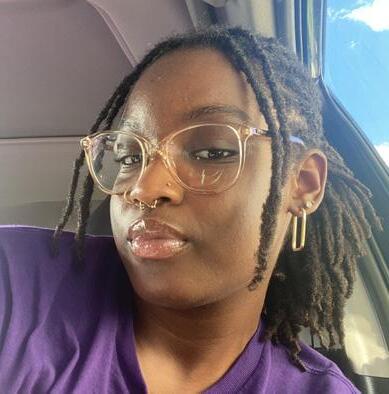
Chioma Nwomeh MALAS
Concentration: Conflict, Peace & Rights
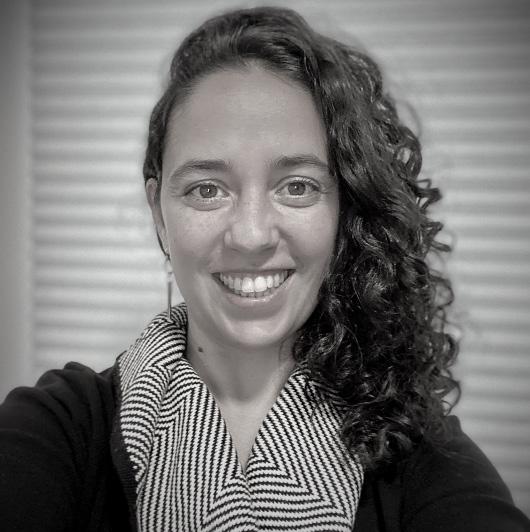
Maria Khalsa MALAS
Concentration: Arts, Literature & Cultural Studies
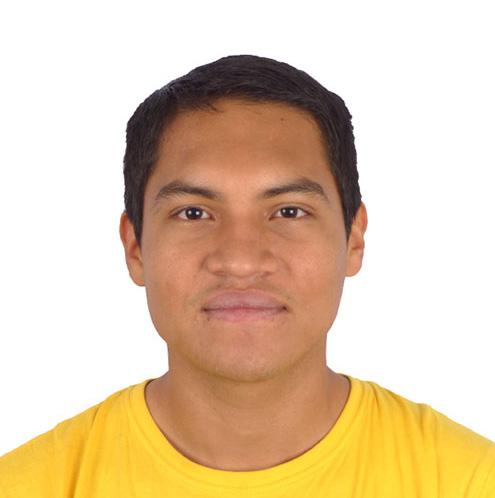
Neider Andrey Devia Merchan LAS PhD
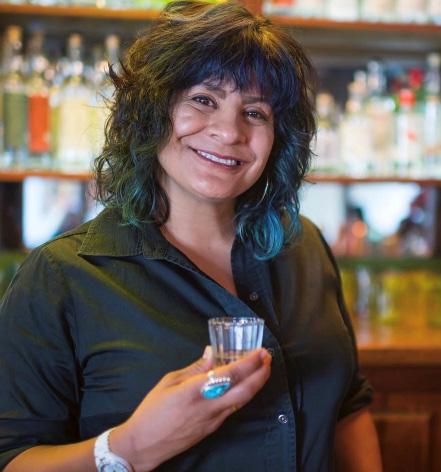
Marsella Macias MALAS
Concentration: Environmental Governance & Resilience
Concentration: Anthropology & Geography & Environmental Studies
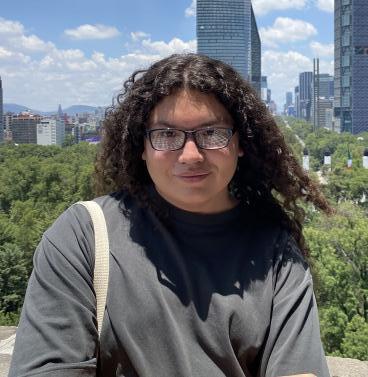
Mark Campbell BA in Latin American Studies
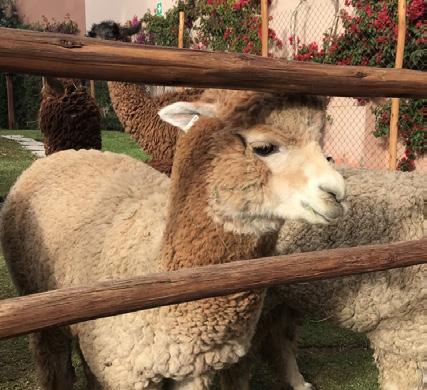
Ericka Arias MALAS/CRP
Concentration: History & Urbanism & Community Development
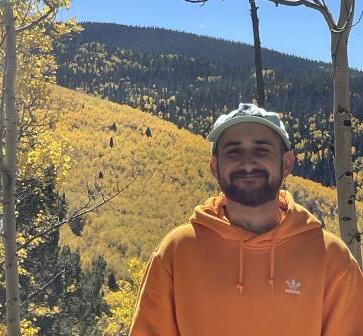
Leonel I. Martín MALAS
Concentration: Conflict, Peace & Rights
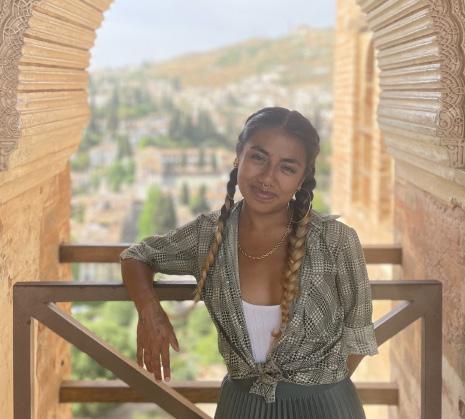
Gisselle L. Salgado MALAS
Concentration: Conflict, Peace & Rights
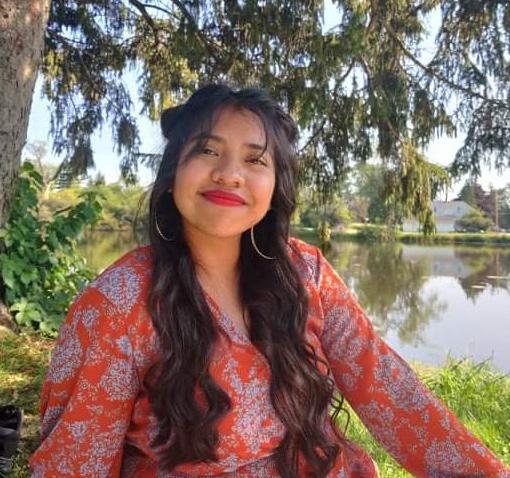
Guadalupe Avilés MALAS
Concentration: Indigeneity in the Americas
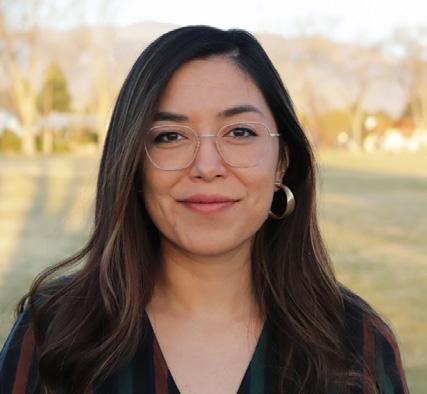
Brenda Macías López MALAS/JD
Concentration: Human Rights & Spanish American Literature
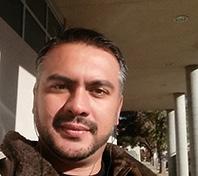
Javier Astorga LAS PhD
Concentration: Built Environment & Geography & Environmental Studies
In May 2024, the Latin American Studies program hosted a convocation to celebrate its graduating students. Surrounded by family, friends, and faculty, we honored their academic achievements in a joyful atmosphere.
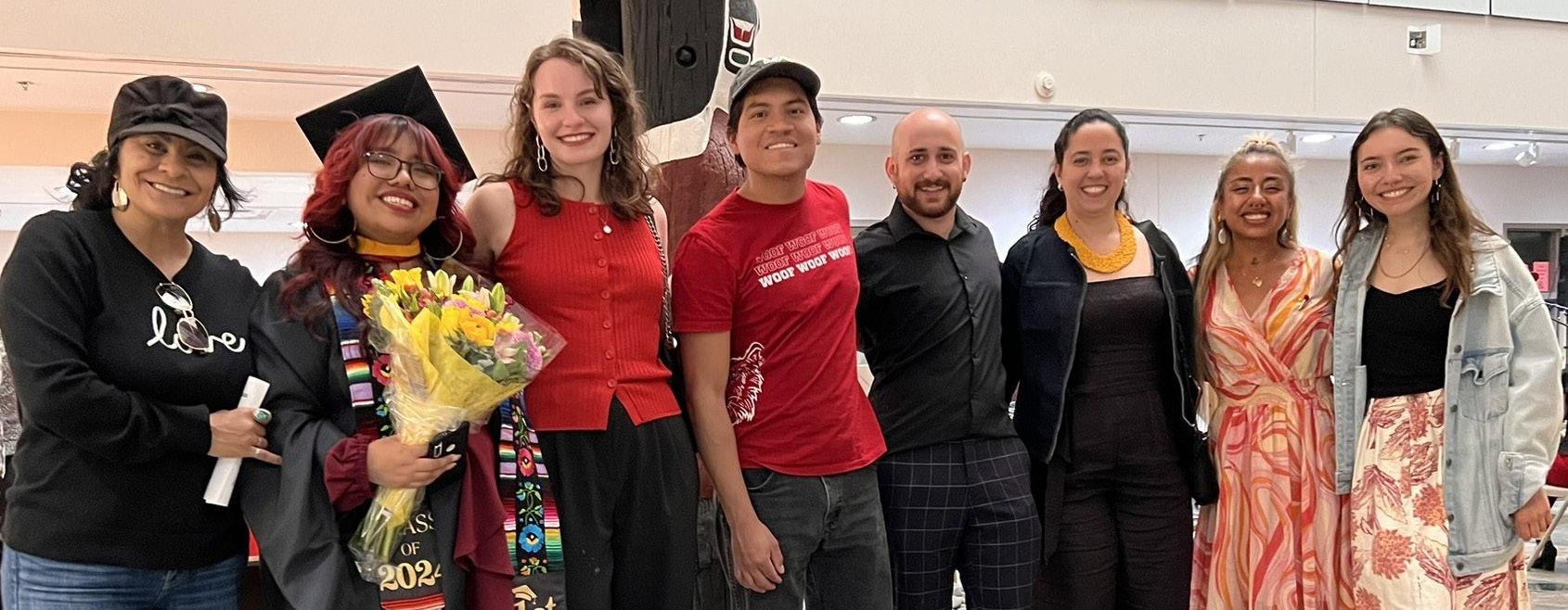
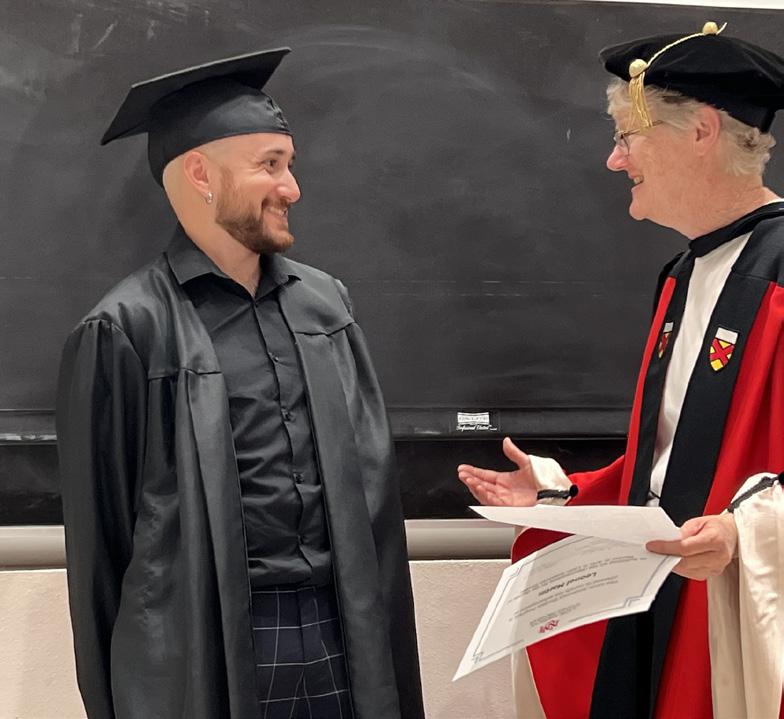
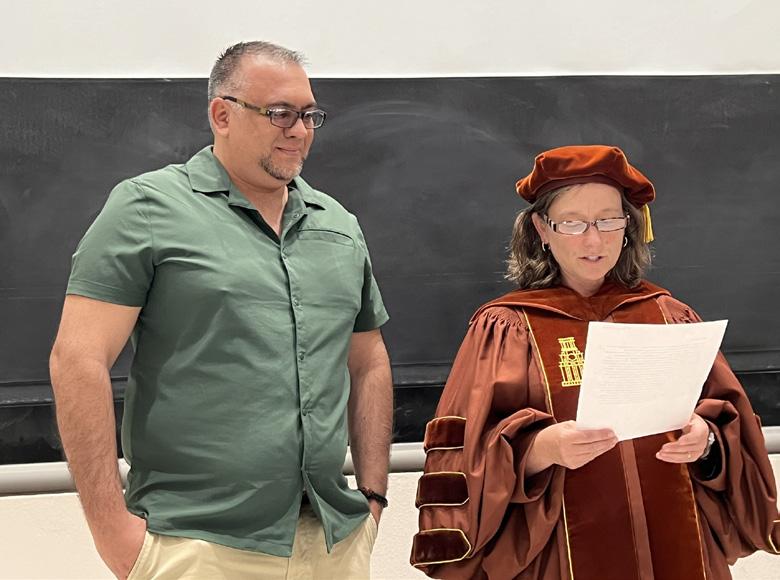
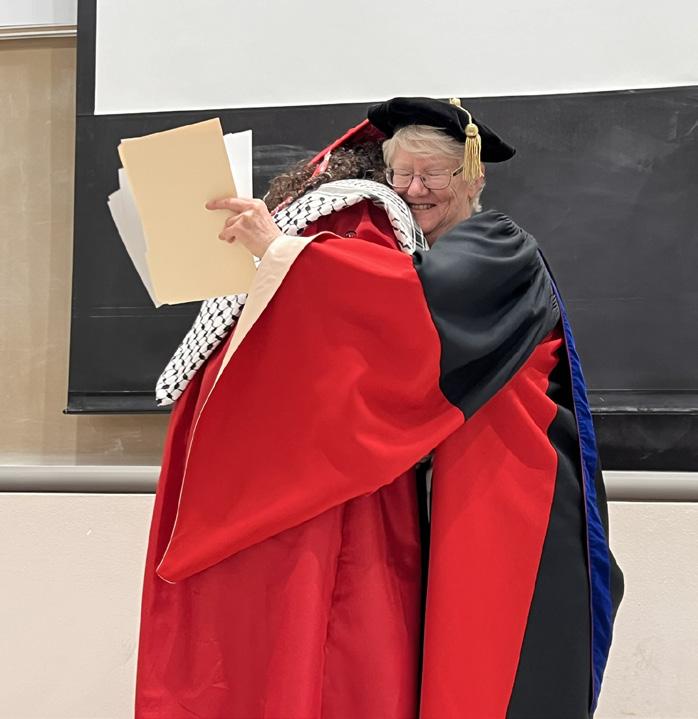
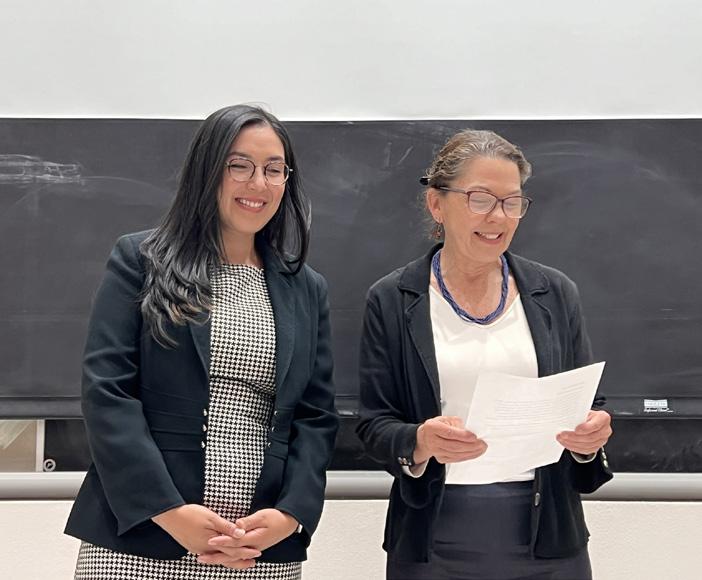
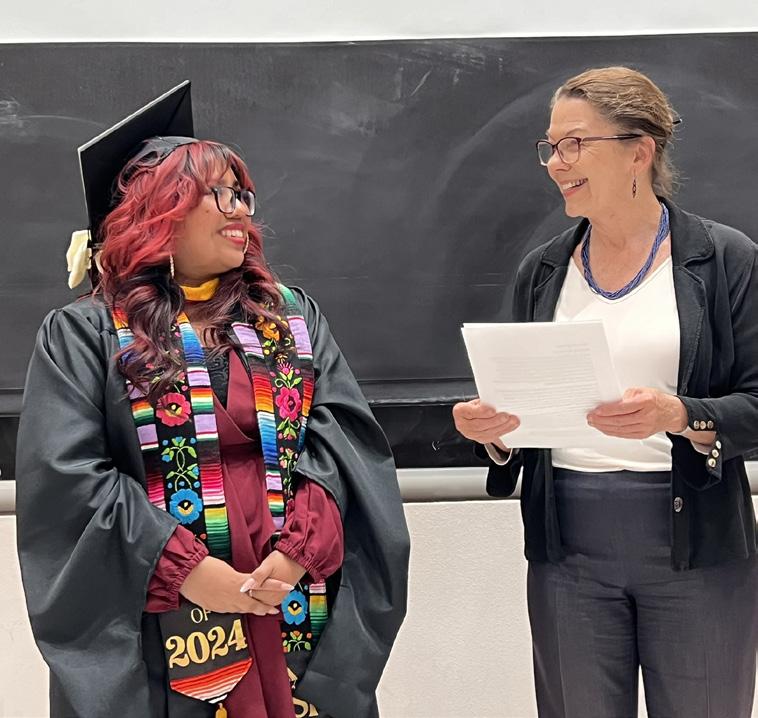
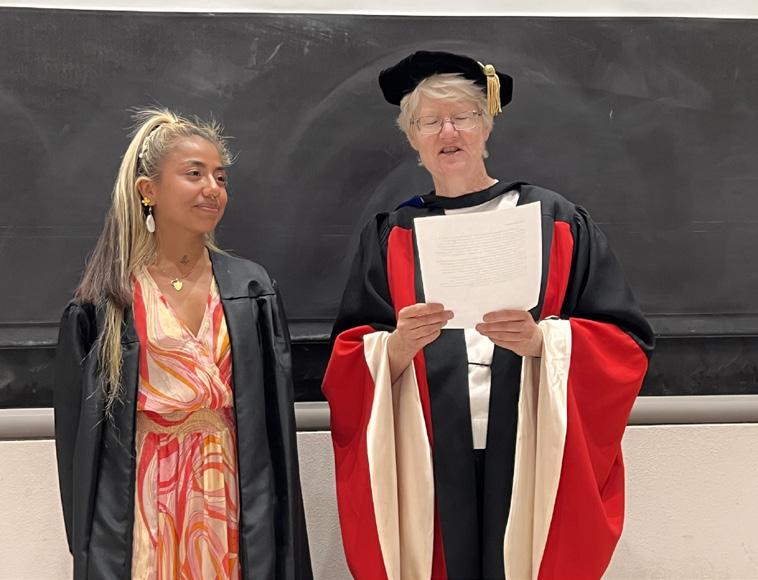
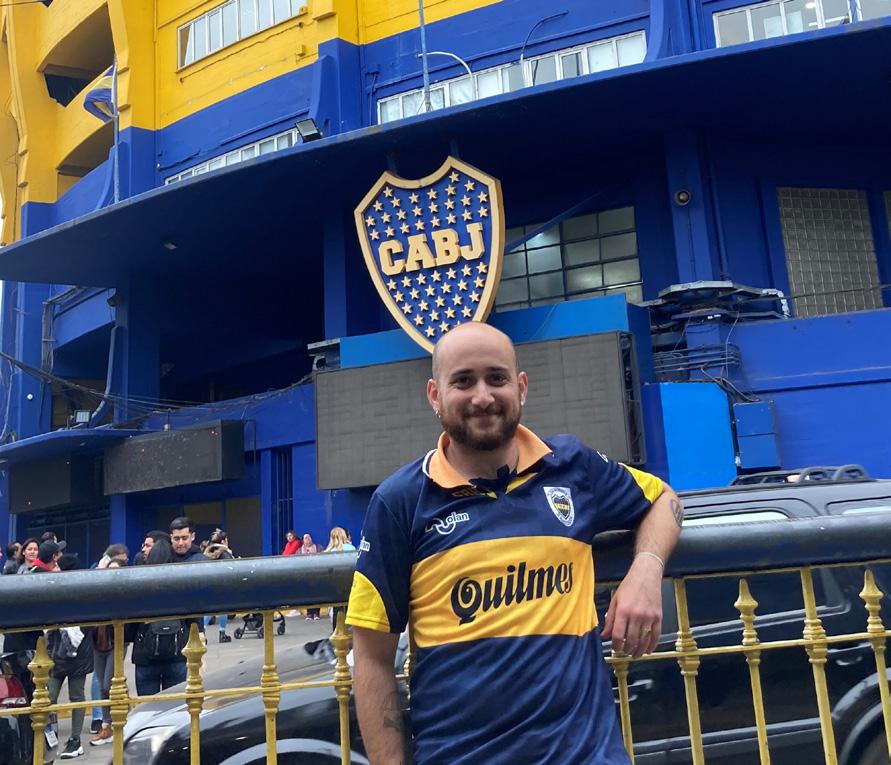
“One of the aspects of the MALAS program that drove me to join was the opportunity to be engaged in an interdisciplinary environment. During my time at UNM I have been able to study two languages (Quechua and Portuguese) as well as classes in the Sustainability, History, Geography, Communication, and Management departments. Participating in this wide range of disciplines enabled me to carry out well-informed interdisciplinary research funded by the LAII’s Field Research Grant. Through this experience, I carried out interviews and ethnographic fieldwork for the first time, providing me with firsthand evidence to write about how racial perceptions and soccer chants interact with each other in the formation of Argentina’s national identity. Besides enabling me to carry out research, engaging with people at the LAII has allowed me to develop extraacademic projects such as the one I am working currently on—a magazine that analyzes social issues in Latin America as they arise in the soccer milieu. This project arose thanks to classes I took with professors Walsh-Dilley, Hernandez, and McKnight, where I learned about the importance of utilizing the knowledge-producing resources at our disposal for the benefit of our larger communities.” -Leonel MartÍn,
“After leaving my hometown and my family there to come and attend UNM I felt all alone, I knew no one and I had no one to rely on. I had left my life behind to start again. After a while, I encountered myself at the LAII where I found a mini-familia. I finally had people to rely on and something that could rely on me. I have really enjoyed many of the classes offered by the LAII, especially the Indigenous language course Nahuatl. They also offer many interesting classes about Latin America, including ones about politics, history, and cultures. Another way in which the LAII has helped me is with scholarships. FLAS has helped me financially to survive college. One of the people who has been the biggest help to me at the LAII is Lenny Ureña Valerio. Without Lenny my college experience would not be half as nice as it is. If you have an interest in Latin America, want to meet fascinating people who share your interests, or find a support system then the LAII is the perfect place.” -Sandro Espinosa y Mann, LAS/Anthropology BA student
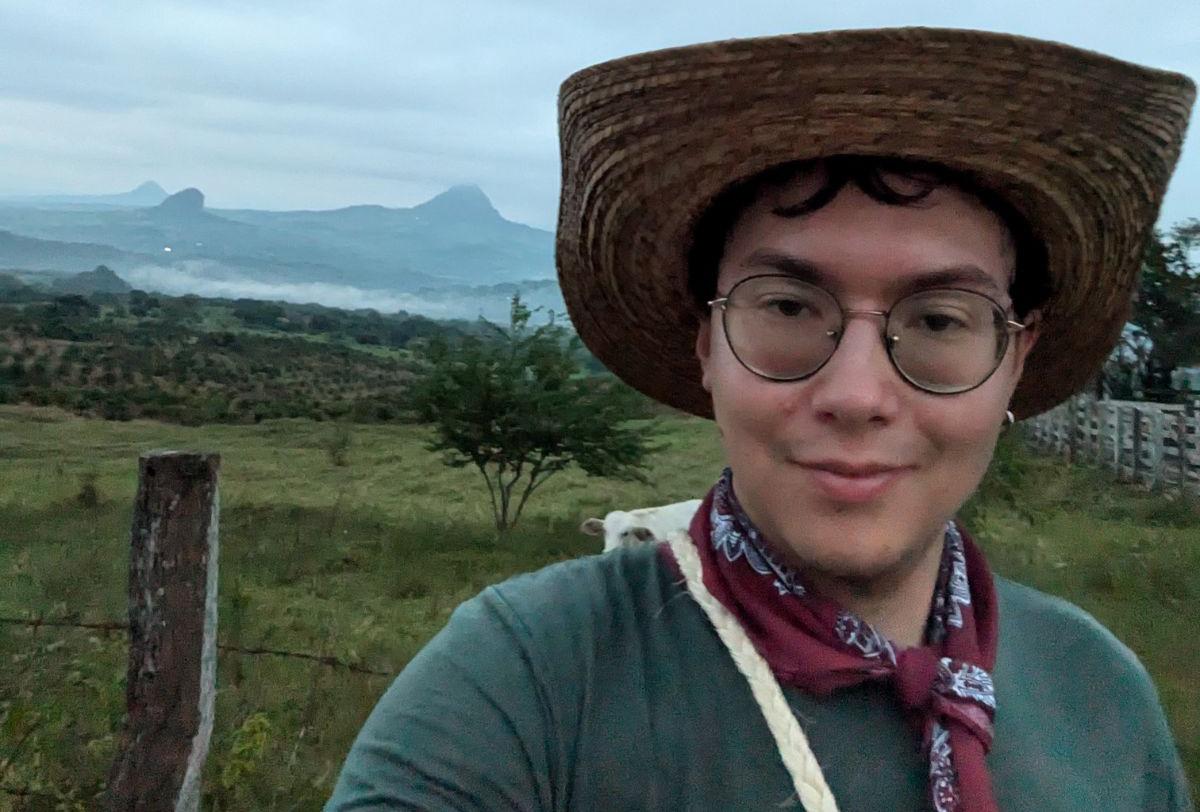
Established by Larry Larrichio and his wife, Alida Davila-Larrichio, the scholarship recognizes Larry’s mother, Mafalda, and her dedication to education. The LAII undertakes the honor of bestowing the award upon academically meritorious LAS graduate students.
The 2023-2024 Mafalda “Muffie” Larrichio Scholarship recipient was Neider Devia Merchan, an LAS PhD student who joined the program in fall 2022 with the support of a Fulbright Colombia Scholarship for Indigenous Communities. He is pursuing the Geography & Environmental Studies and Anthropology specializations, working closely with Prof. Les Field (Anthropology). Neider is a proud member of Resguardo Indígena Guasimal, a Colombian Indigenous community located in the south of the province of Tolima.
Reflecting on the scholarship, Neider shared, “The story of Mafalda ‘Muffie’ Larrichio [...] resonates deeply with me. Her courage, resilience, and unwavering commitment to her family are both inspiring and humbling. She possessed an extraordinary respect for education, despite the hardships she faced and the sacrifices she made. Knowing that this scholarship was established in her honor makes it even more meaningful to me.”
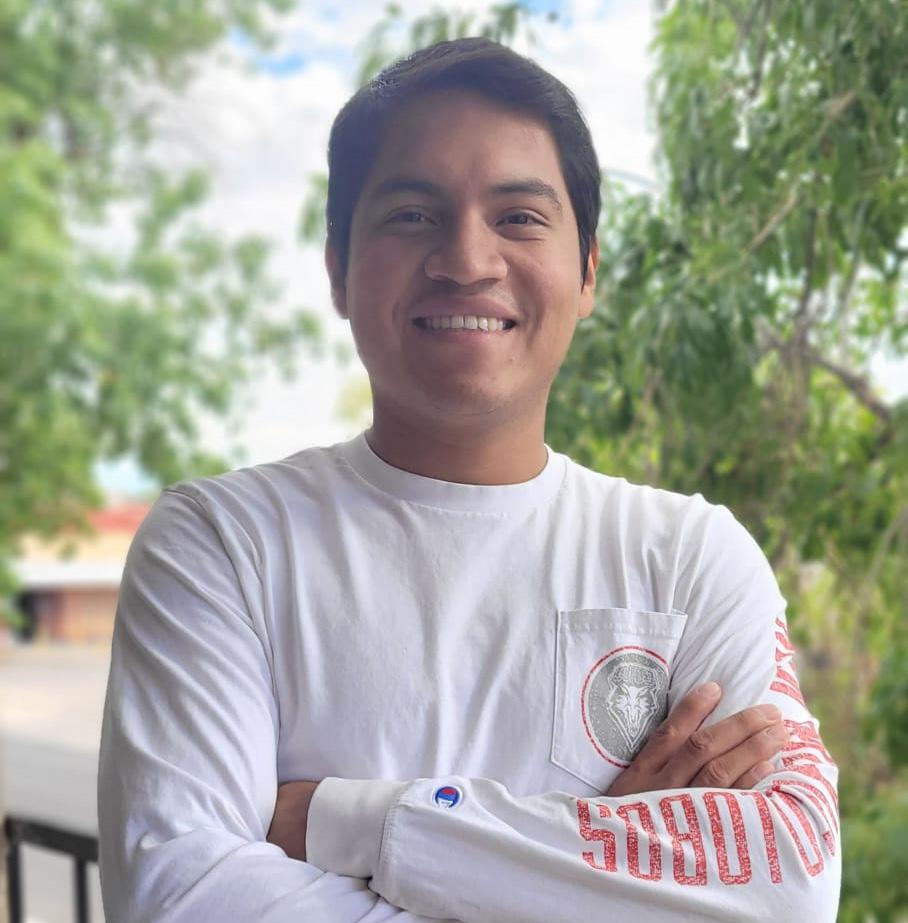
The Student Organization for Latin American Studies (SOLAS) is an independent, student-run entity that organizes social outings and academic events. SOLAS is not just for Latin American Studies students - students from any discipline who focus their interests on the region are encouraged to join. The organization maintains student representation on all Latin American & Iberian Institute governance committees, offering students leadership opportunities.
2023-2024 SOLAS officers and LAII committee representatives included:
Daniela Galvis Garzón, MALAS, President “Lesca” Fernanda González, Psychology BA, Vice-President
Savanah Fuller-Ezekiel, Psychology BA, Secretary/Treasurer
Mariana Jiménez, Art Studio BFA/LAS minor, Communications/Marketing
Leonel MartÍn, MALAS, Interdisciplinary Committee on Latin American Studies (ICLAS)
Sandro Espinosa y Mann, LAS/Anthro BA, Executive Committe
Marsella Macias, MALAS, Grants and Awards Committee
Giselle Salgado, MALAS, Operations Committee
Our affiliated faculty are experts on Latin America and Iberia across the university. The LAII Affiliated Faculty consist of LAS teaching faculty, who regularly offer courses with Latin American content and advise LAS students, as well as faculty who have diverse teaching, research, and service commitments to Latin America and Iberia.
> 250 Publications
“ I very much enjoy having LAII-affiliated students in my International Law and Human Rights classes. They bring an interdisciplinary perspective and they enrich the dialogue in the classroom. I also value the opportunity to serve on the Interdisciplinary Committee for Latin American Studies. As a law professor it is inspiring to engage with colleagues in Anthropology, Art History, Sociology and many other disciplines. Over the past 25 years, I have also served on many masters students’ thesis and professional paper committees of studies. I value the chance to help guide their topic development, research, writing and revision process.”
- Prof. Jennifer Moore, UNM School of Law
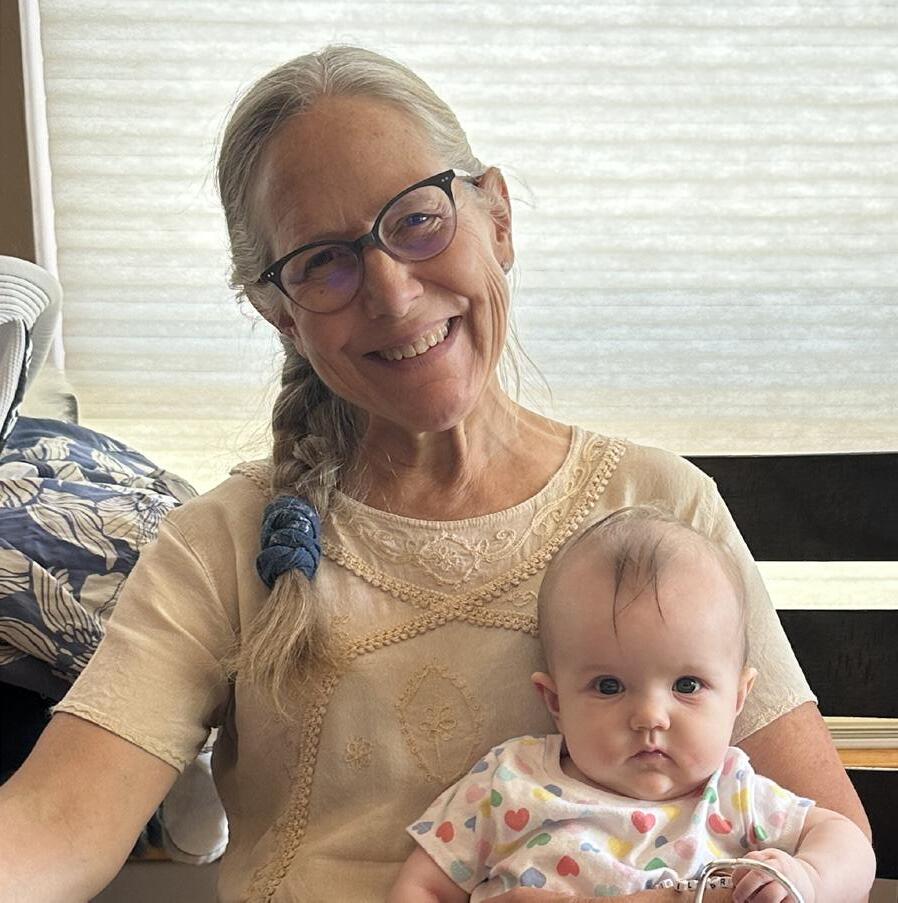
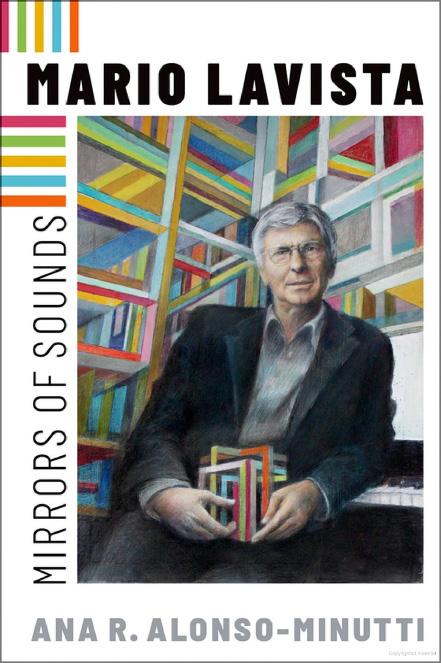
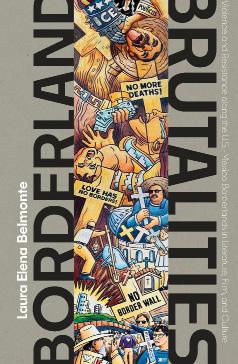
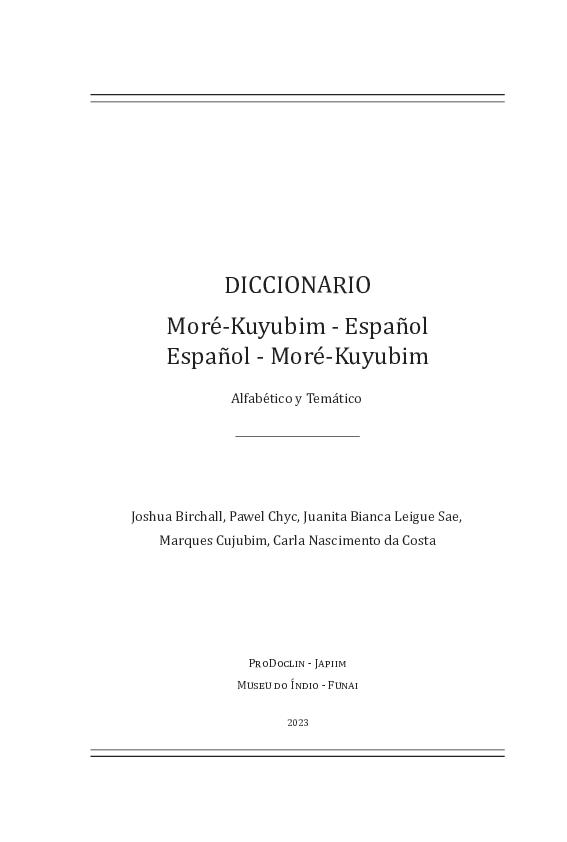
Mario Lavista: Mirrors of Sounds
Ana R. Alonso-Minutti Oxford University Press, 2023

Borderland Brutalities: Violence and Resistance Along the US-Mexico Borderlands in Literature, Film, and Culture
Laura Elena Belmonte University of New Mexico Press, 2024

Diccionario Moré-Kuyubim - Español Versión 2.1
Joshua Birchall (Co-Author) Museu do Índio, 2023
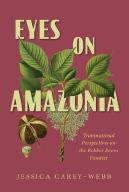
Eyes on Amazonia: Transnational Perspectives on the Rubber Boom Frontier
Jessica Carey-Webb Vanderbilt University Press, 2024
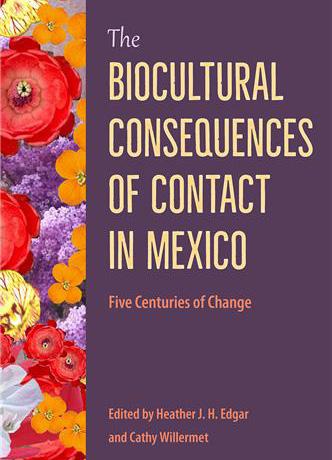
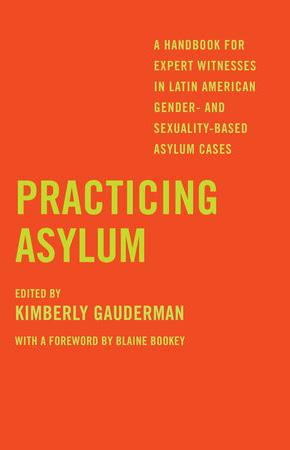

The Diplomacy of Independence Benjamin Franklin Documents in the Archives of Spain
Thomas E. Chávez University of Pennsylvania Press, 2024
The Biocultural Consequences of Contact in Mexico: Five Hundred Years of Change
Heather J. H. Edgar (CoEditor)
University of Florida Press, 2023
Practicing Asylum: A Handbook for Expert Witnesses in Latin American Gender- and Sexuality-Based Asylum Cases
Kimberly Gauderman (Editor) University of California Press, 2023
Questioning Rebound: People and Environmental Change in the Protohistoric and Early Historic Americas
Emily Jones (Co-Editor) University of Utah Press, 2023
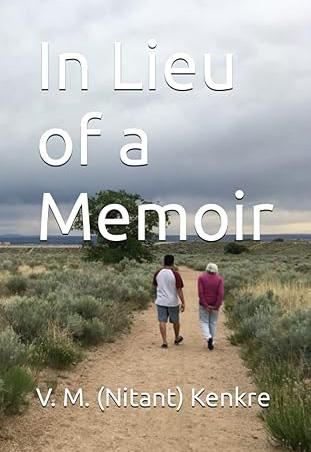
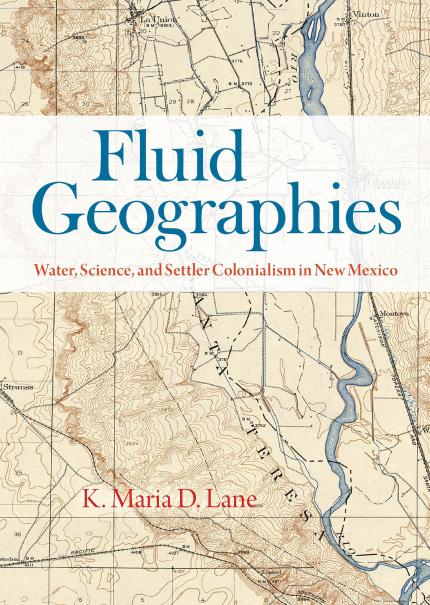
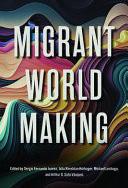
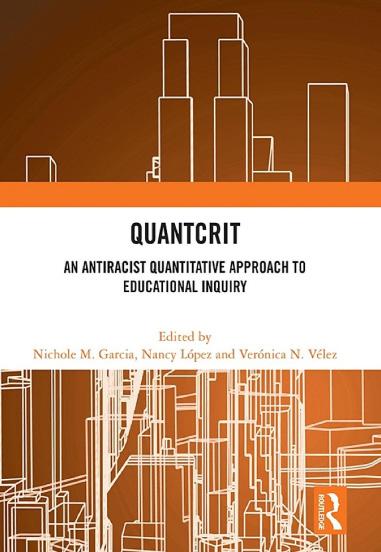
V. M. (Nitant) Kenkre
Qurate Books Private Limited, 2023

Fluid Geographies: Water, Science, and Settler Colonialism in New Mexico
K. Maria D. Lane University of Chicago Press, 2024
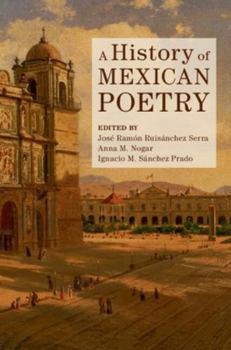
A History of Mexican Poetry
Anna M. Nogar (CoEditor) Cambridge Press, 2024
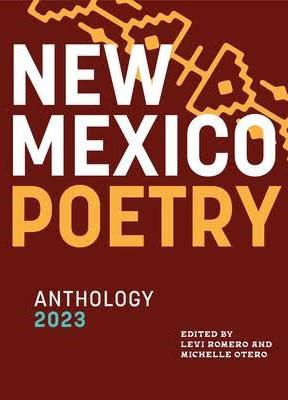
New Mexico Poetry Anthology 2023
Levi Romero (CoEditor) Museum of New Mexico Press, 2023
Michael Lechuga (Co-Editor) Michigan State University Press, 2023
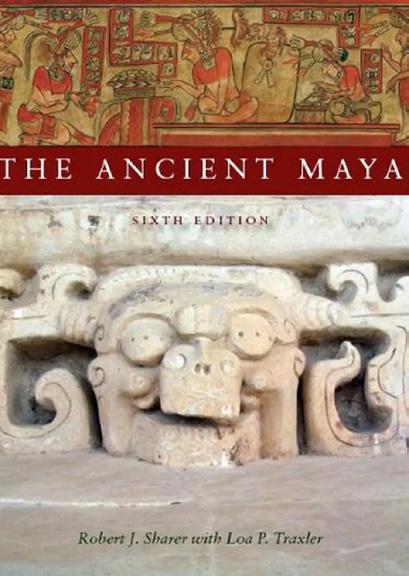
The Ancient Maya, Sixth Edition (Chinese Language Edition)
Loa P. Traxler (CoAuthor) Zhejiang Literature & Art Publishing House, 2023
QuantCrit: An Antiracist Quantitative Approach to Educational Inquiry
Nancy López (Co-Editor) Routledge, 2023
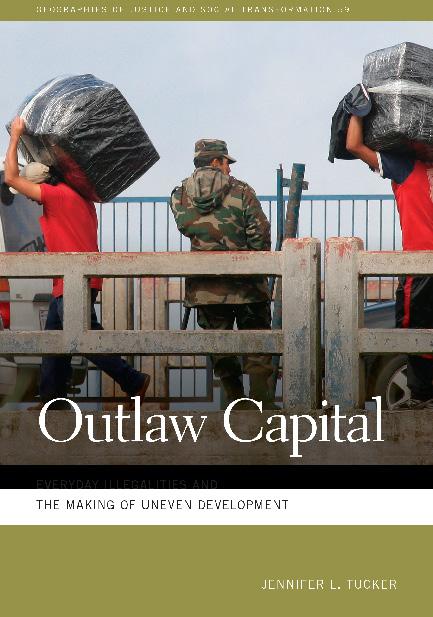
Outlaw Capital: Everyday Illegalities and the Making of Uneven Development
Jennifer L. Tucker University of Georgia Press, 2023
The LAII is commited to supporting student scholarship on Latin America. From summer 2023 to spring 2024, we funded 12 students to facilitate research and study internationally in 7 countries. In addition, we supported 9 students to work on their dissertation and 8 students to study Indigenous and Portuguese languages in the US. Our research funding opportunities include the Field Research Grant (FRG), the Ph.D. Fellowship, the UISFL Field Research Grant for Undergraduates, and the Academic Year and Summer Foreign Language and Area Studies Fellowship (FLAS). Our Field Research Grant and UISFL Field Research Grant recipents are mentioned below.
Joseph Scala, “The Mission Grape and the Future of Wine in Baja California”
Joselin Castillo, “Geneaology of the Northern Triangle”
Giselle Salgado, “Xebra entre Pachecos: Mexico’s Blooming Legal International Cannabis Industry”
Luisa Hurtado, “Sociolinguistic Attitudes in Silvia and Popayán, Cauca, Colombia”
Logan Ballou, “The Linguistic Expression of Demonstratives in Secoya”
uisfl underGraduate Grants
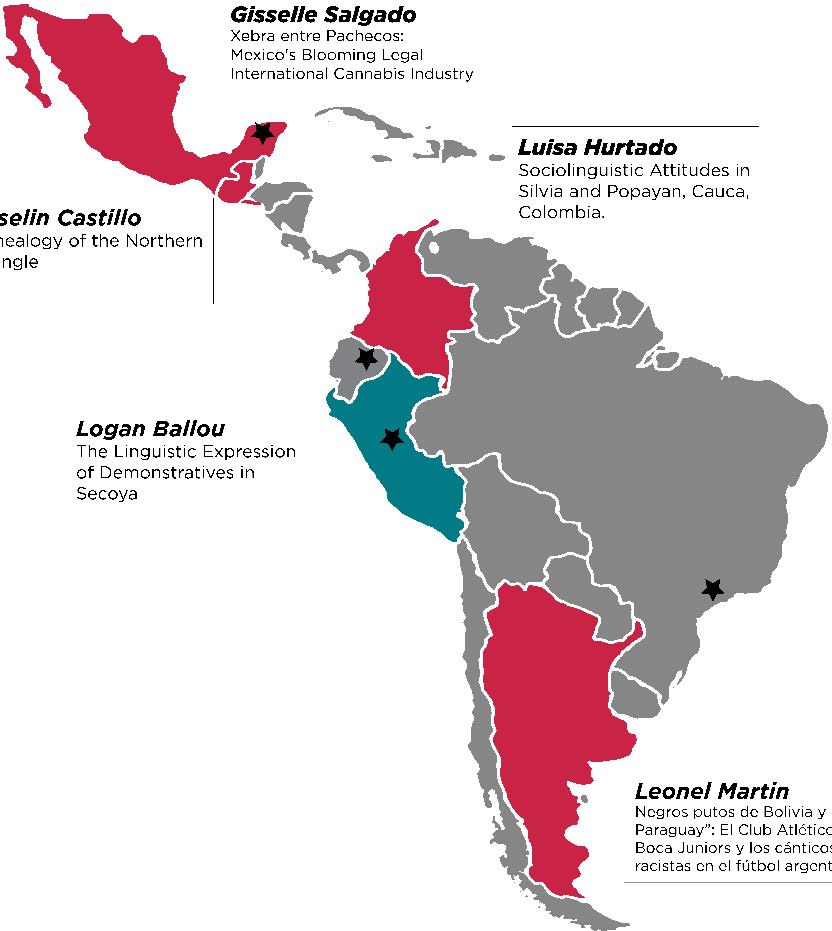
Leonel Martín, “‘Negros putos de Bolivia y Paraguay’: el Club Atlético Boca Juniors y los cánticos racistas en el fútbol argentino”
summer flas placements
Christina Lorenzatto (Anthropology PhD), Shipibo-Konibo
Guadalupe Avilés (MALAS), Nahuatl
Kate Nielsen (Anthropology MA), Kichwa
Logan Moses (Spanish & Portuguese MA), Portuguese
Mary Irey (Anthropology BA), Yucatec Maya
Sandro Espinosa y Mann (LAS/Anthropology BA), Nahuatl
Allison Wheeler (History MA), Quechua
Guadalupe Avilés (MALAS), Nahuatl
Ishtar Rosario Medina (Language, Literacy, and Sociocultural Studies MA), Portuguese
Kaitlin Lewis (Anthropology PhD), Portuguese
Madison Hohn (Spanish and Portuguese BA), Portuguese
Sandro Espinosa y Mann (LAS/Anthropology BA), Nahuatl
Shane Saddison-Bradford (Spanish and Portuguese MA), Portuguese
Josué Aciego, Anthropology
Elisabeth Baker, Spanish & Portuguese
Daniel Clayton, Economics
Valerio Di Fonzo, Anthropology
Daven Hobbs, Linguistics
Fredy Mendieta, Spanish & Portuguese
Edrea Mendoza Quintero, History
Laura Steele, Anthropology
Jens Van Gysel, Linguistics
Marina Álvarez, “The Sentimentalization of the Maestra Rural”
Antonia Carcelén Estrada, “The double colonial bind of the Pueblo nations during Spanish and US Imperialism (1598-1905)”
Leopoldo Flores Valenzuela, “The Alabados of New Mexico and the Valley of Oaxaca. A Comparative History of the Feast through the Ritual and Chants of Two United Regions in New Spain”
In Fall 2023, the UNM Latin American & Iberian Institute (LAII) was awarded a Title VI Undergraduate International Studies and Foreign Language (UISFL) grant from the U.S. Department of Education. This prestigious recognition establishes UNM as one of only thirteen institutions nationwide to receive this grant, underscoring its commitment to advancing international education.
The UISFL grant, developed in collaboration with Central New Mexico Community College (CNM), the UNM International Studies Institute, the UNM Language Learning Center, the Global Education Office, and other campus partners, aims to enhance foreign language training, expand interdisciplinary knowledge of global regions, and adequately prepare undergraduate students for success in the global workforce.
Over the course of three years, UNM will receive $540,000 to support area studies and language instruction in Arabic, Mandarin Chinese, Nahuatl, Portuguese, Quechua, Swahili, and Yucatec Maya. These funds will play a critical role in a range of initiatives, including curriculum development, faculty professional development, study abroad opportunities, undergraduate international research, and community outreach activities designed to foster greater engagement with global issues.
During the 2023-2024 academic year, UISFL funds supported undergraduate research projects in Latin America, enhancing students’ academic and professional growth. One notable participant, Logan Ballou, traveled to Iquitos and San Antonio del Estrecho to explore “The Linguistic Expression of Demonstratives in Secoya” under the guidance of Prof. Rosa Vallejos. This immersive experience allowed Logan to engage meaningfully with local communities, significantly enriching her understanding of the region.
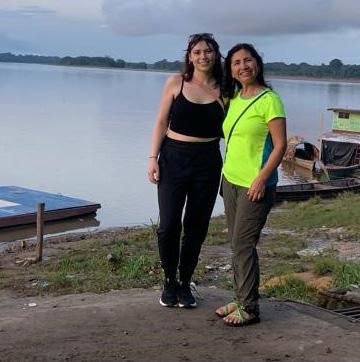
Furthermore, the grant enabled the development of several new courses, including Advanced Maya I and II, as well as a Collaborative Online International Learning (COIL) course focused on language and culture in partnership with Universidad Autónoma de Yucatán in Mexico. Additionally, funding supported the creation of a global history course on water, and revisions to MGMT 420/595: Management in Latin America offered by the Anderson School of Management.
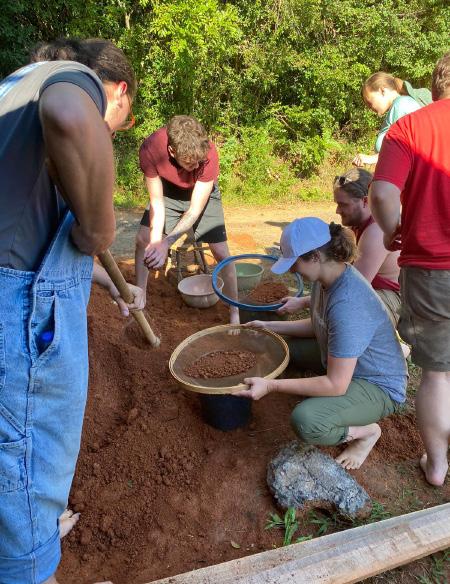
Led by Prof. Andreas Hernandez and MALAS student Marsella Macias, Brazil Field Experience: Sustainability, Networks, and Worldviews was a course taught in Spring of 2023. From May 15June 1, students traveled to Southern Brazil.
This course deeply investigated meanings and practices of sustainability through experiences in the “living laboratories” of social movements and communities. Sustainability, particularly in the Global South, is often peoples working creatively to protect or recuperate their local ecosystems, to guarantee livelihoods and ways of life over the long-term.
While in Brazil, students experienced homestays in a Landless Movement Community, which is at the core of what may be the world’s most elaborated, democratically-run, agroecological food system. They also engaged with the Guaraní, a quilombo (AfroBrazilian community), and traditional fisherfolk.
Each of these diverse experiences draws from worldviews which challenge modern economic growth paradigms. They are working in networks to weave new social fabrics which are resilient and regenerative in the face of social and ecological change.
The Latin American & Iberian Institute offers Quechua, Nahuatl, and Yucatec Maya each year for students seeking to learn Latin American Indigenous languages. These languages fulfill Latin American Studies language requirements and are open to all students. The courses are offered through the Department of Linguistics and can count for graduate credit, although they may not satisfy specific program requirements depending on individual study plans.
Proficiency in Spanish is highly encouraged for those taking these courses. LAII collaborates with Centro Tinku in Cusco and faculty in Huaraz, Ancash, Peru, to offer Quechua at introductory to intermediate levels, with advanced courses available upon request. Nahuatl is offered in partnership with the Zacatecas Institute for Teaching and Research in Ethnology (IDIEZ), catering to students from beginning to advanced levels. Yucatec Maya courses are available at the beginning and intermediate levels, taught by UNM-affiliated instructors in Valladolid, Mexico.
cE xiHuitL acadEmico Huanya tLamacHtiHquEtL sabina- an acadEmic yEar witH profEssor sabina
By Guadalupe Avilés
¡Piyali momachtianih! ¿Queniuhqui tiitztoc? Every day our tlamachtihquetl (professor) starts our Nahuatl class with that question: Hello students how are you doing? To which we normally answer cualli (good), zancualli, (okay), or my most common response, niciauhtoc (I’m tired).
My family is from Mexico. Although my grandmother from Tlaxcala had ties with the Nahuatl language, she never learned it from her family. I wanted to break this cycle and reconnect with my roots which is why I decided to take Nahuatl my first year of graduate school through the FLAS fellowship. I had the opportunity to attend the University of Utah’s Summer Nahuatl Intensive Language Program, where I advanced from a beginner to an intermediate level! Now at the advanced level, I have taken two online classes with tlamachtihquetl Sabina.
As part of Advanced Nahuatl, we focused on readings about the culture, religion, and region of Chicontepec, the area where our IDIEZ professors are from.
Class activities range from discussions, visual and literary analysis, and translating texts. My favorite activites were the visual analysis of various paintings, which allowed for creative interpretations of the problems faced by Indigenous people in Mexico throughout history. We did this while we studied Luz Jiménez, the muse for artists such as Diego Rivera and José Orozco, who had a huge impact on the representation of Nahua people in Mexico. We examined artwork such as Diego Rivera’s La Maestra Rural and analyzed the contents in the painting and its context in Nahuatl.
My favorite painting was Jean Charlot’s
Mexicanatli quimachtia tlaxcalchihuaz cihuapil, which roughly translates to “Indigenous person showing a girl how to make tortillas.”
I loved this painting because it is wholesome while containing a deeper commentary about the passing of Nahua traditions in the kitchen. The kitchen is also a place for knowledge. This was made clear when Sabina visited UNM in fall of 2023. During her visit, she conducted three events: an introduction to Nahuatl workshop, a lecture on traditional medicine from La Huasteca, and a cooking class. My favorite part was cooking with her! I learned
a lot during this hands-on experience. We made caldoh tlen piyomeh chichiltic, red chile chicken soup. The event was in Nahuatl, and it was good to practice cooking terminology; such as tehtequi (to cut), molonia (to boil) and poyeltia (to season). I also learned a lot about cultural cooking practices. For example, I didn’t know that there was a specific way to cut chicken for different foods in Tecomate.
¡Huei tlazcamati tlamachtihquetl Sabina huan niyolpaqui tlen niitztocqui pan motlamachtiliz! Thank you, Sabina, and I am happy to have been in your classes!
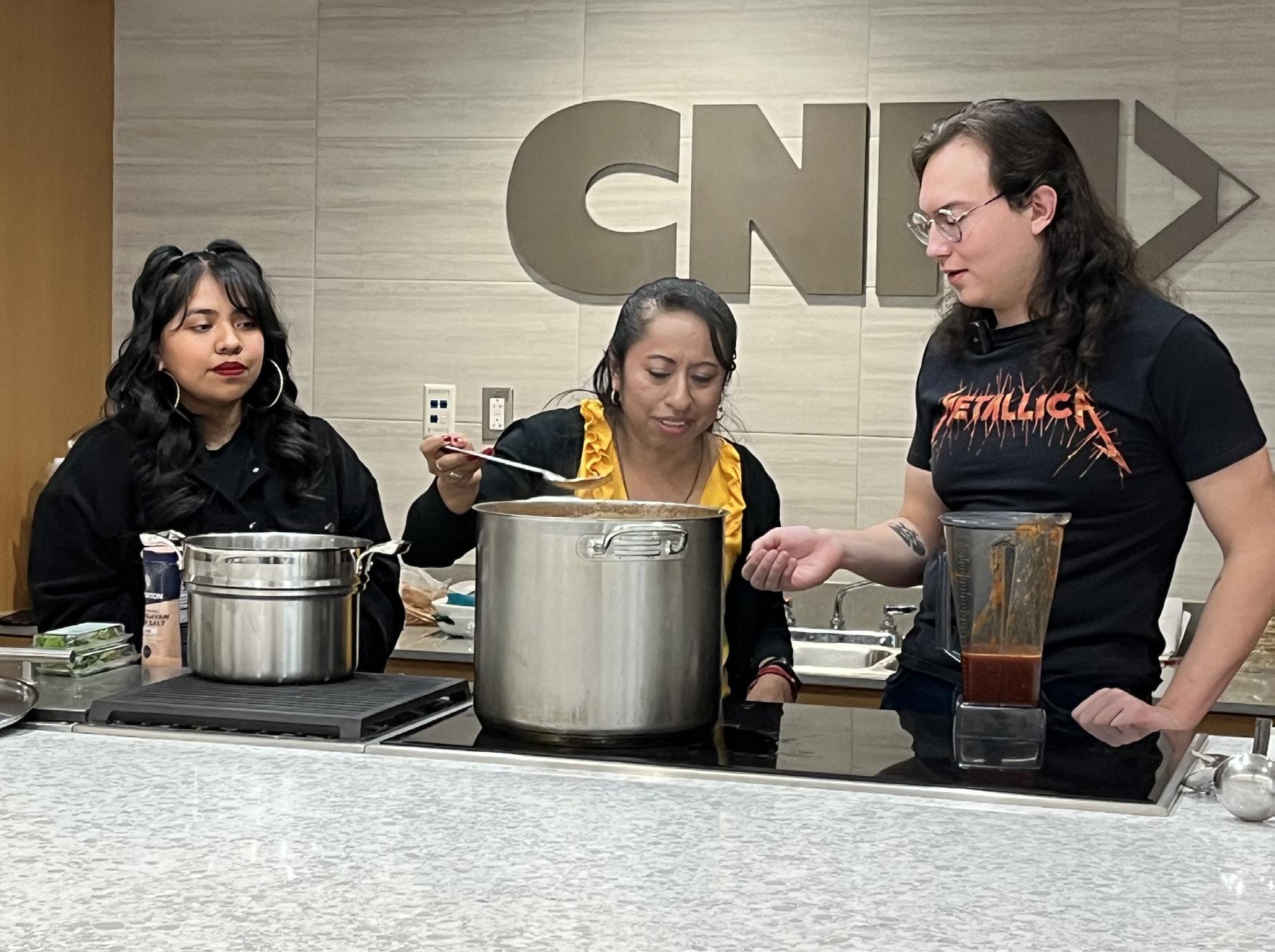
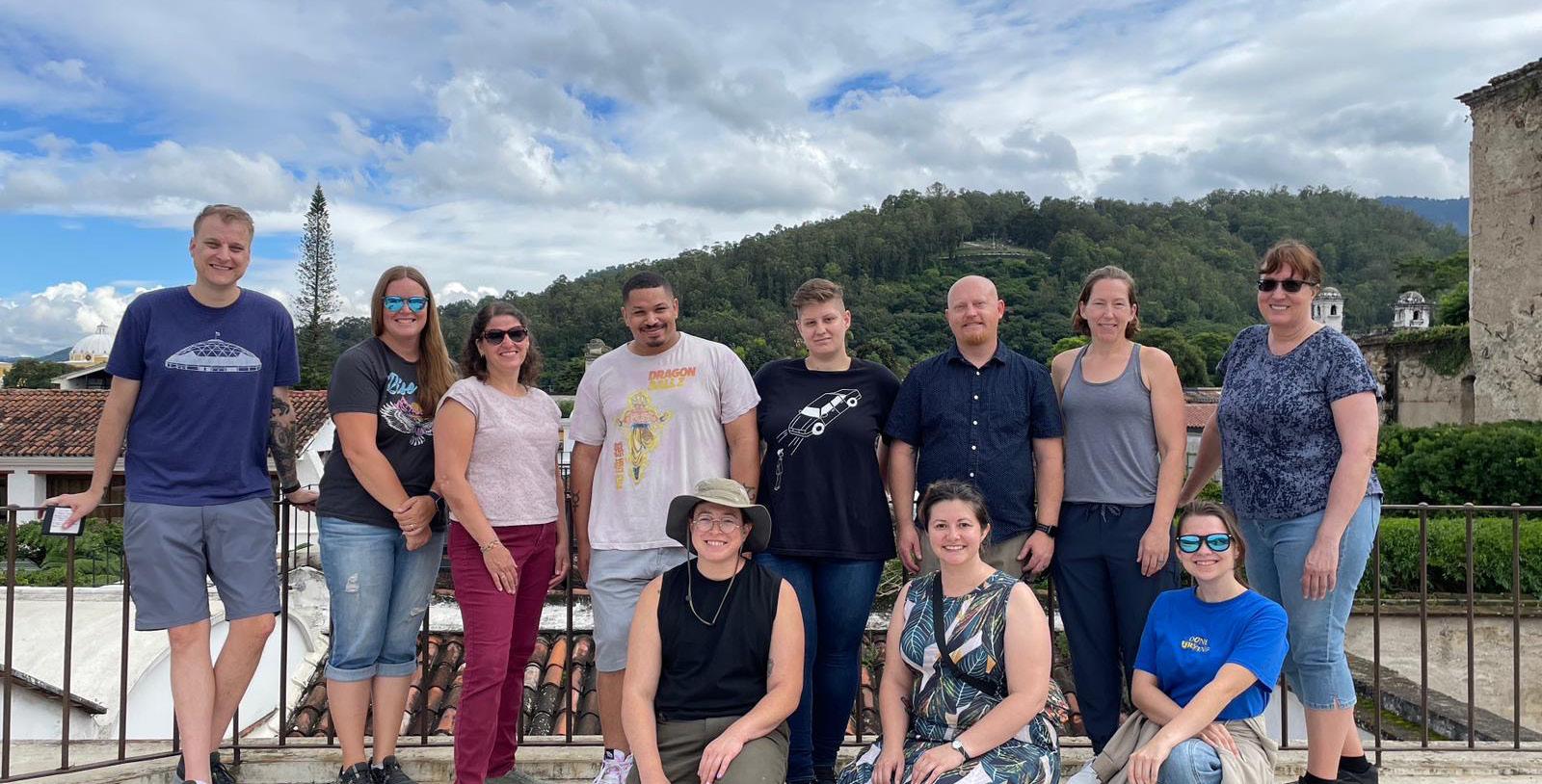
During the 2015-2016 academic year, the LAII began a partnership with Central New Mexico Community College (CNM) to strengthen the relationship and leverage resources between the UNM and CNM Latin American Studies programs. Housed within the CNM School for Liberal Arts, the LAS program provides students with an interdisciplinary foundation for learning about Latin America through cultural anthropology, history, geography, language, and literature, among other disciplines. Students gain valuable language skills and area competencies that can be applied in business, public service, and numerous other career fields.
The centerpiece of the collaboration with CNM was a study abroad program to Antigua, Guatemala. The course took place during the 2023 fall intersession term, August 7-27, and nine students spent nine days in Guatemala (August 14-22). Dr. Jessica Craig and Dr. Brandon Morgan were the program’s faculty leaders. Students stayed with local families, and they visited Mayan communities where they observed and engaged with artisanal traditions that allow various Mayan peoples to preserve their languages and cultures while supporting their communities economically. Significantly, the course was designed as a short-term, low-cost study abroad program that would allow underserved students access to international, in-country education.
The LAII continues to partner with CNM and the Humanities Now! Mellon initiative to cosponsor the Latin American Studies Lecture Series on CNM campus. The series featured the following public talks:
“The Meanings and Uses of ‘Found’ Objects by Contemporary Maya Ritual Practitioners” by Linda Brown (Adjunct Research Assistant Professor, UNM Anthropology)
“Listening to Latin America” by Daniel Alarcón (Executive Producer of Radio Ambulante)
“Maya Health Alliance (Wuqu’ Kawoq)” by Anne Kraemer (Anthropologist and Director/ Chief Executive Officer)
“The Cannabis and Agave Industries in Mexico” by Marsella Macias (MALAS student) and Gisselle Salgado (MALAS student)
“Identity and Race in Latin America” by Guadalupe Avilés (MALAS student) and Leonel Martín (MALAS student)
The LAII maintains a vibrant outreach program that extends throughout UNM and beyond. In addition to hosting our own events, we co-sponsor a variety of programs in collaboration with departments and organizations across campus. Lecture series, student events, guest speakers, and conferences all enrich the dynamic learning experience at UNM. In the 2023-2024 academic year, the LAII partnered with several esteemed organizations, including the Albuquerque Museum, the National Hispanic Cultural Center, the Guild Cinema, AfroMundo, and the National Institute of Flamenco.
In collaboration with the Department of Spanish & Portuguese, the LAII also hosted the Bate Papo, a series of informal conversation meetings in Portuguese that provides a supportive and enjoyable environment for students eager to learn and practice the language. Open to individuals of all proficiency levels, this group fosters engaging conversations and connections between Portuguese language learners and fluent speakers. Highlights of the series featured a lightning talk by Prof. Jessica Carey-Webb (UNM Spanish & Portuguese) on “Capoeira and the Nordeste,” followed by a capoeira workshop led by Capoeira Girassol. The series also included a presentation by Prof. Paulo Dutra (UNM Spanish & Portuguese) on “Festa de Carnaval e Samba” and an energetic samba workshop with live percussion by Pilar and Frank Leto.
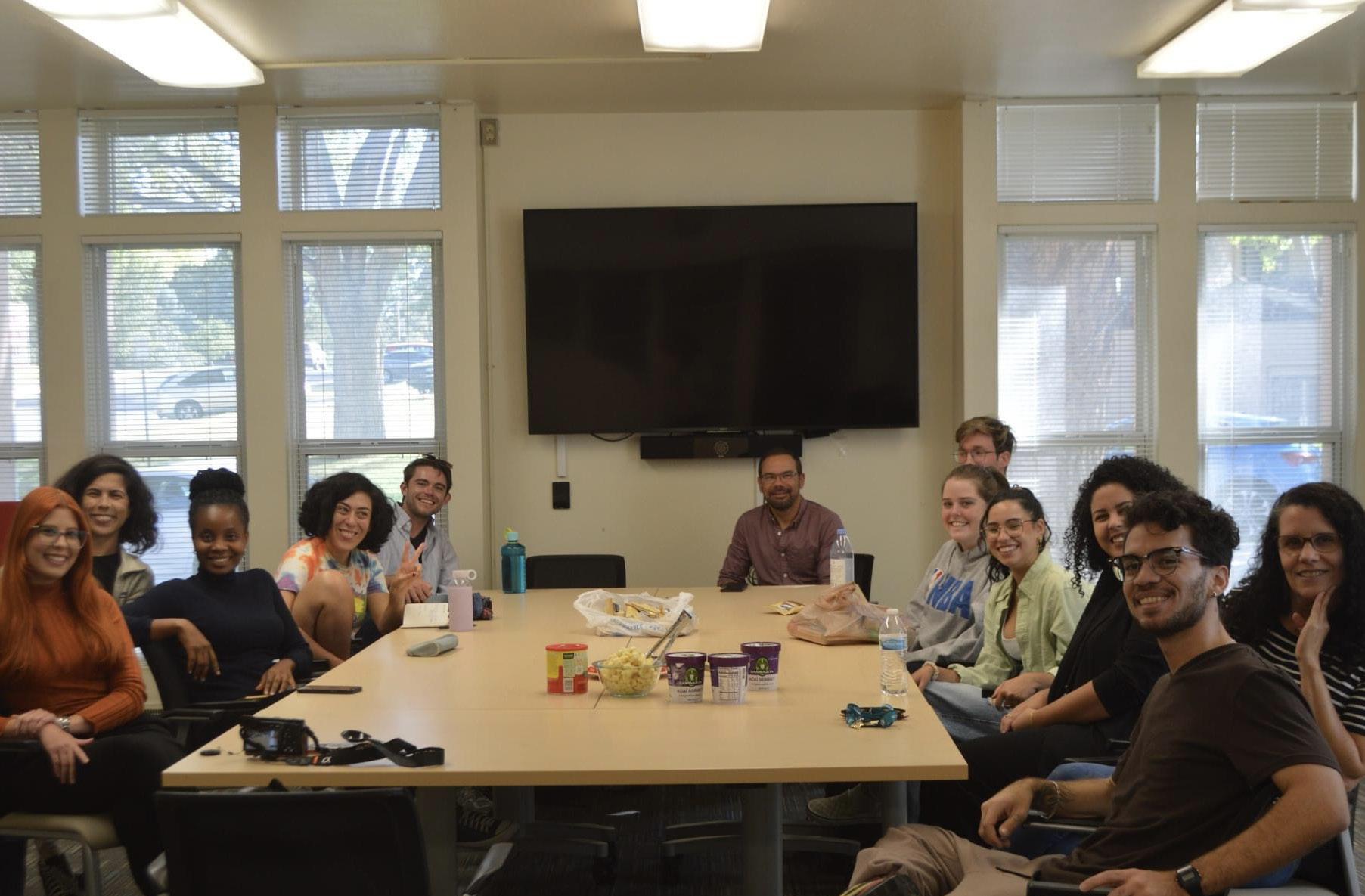
By Madeline Griffin
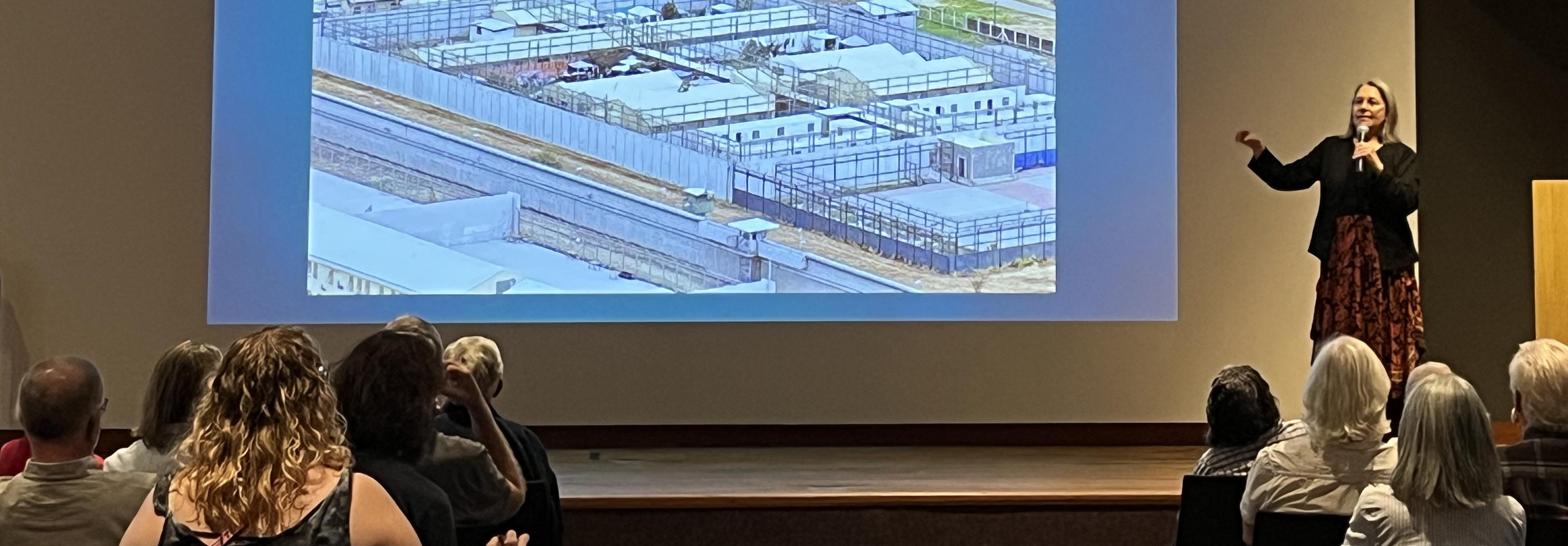
In September 2023, Pascale Bonnefoy Miralles, an investigative journalist and professor at the University of Chile, visited the Latin American and Iberian Institute (LAII) to present her research on the post-dictatorship transition in Chile. This event was organized in partnership with the Albuquerque Museum and the Guadalupe Institute Western Hemisphere Center to commemorate the 50th anniversary of the tragic coup d’état in Chile in 1973. Bonnefoy Miralles’ visit coincided with the “Dictators and the Disappeared” exhibition at the Albuquerque Museum, co-curated by Russ Davidson, Emeritus Curator of Latin American & Iberian Collections at the University of New Mexico (UNM), and Leslie Kim, former Curator of History at the Albuquerque Museum. In addition to the event hosted at the LAII, Bonnefoy Miralles also gave a public talk at the museum, titled: “Examining the Human Rights Legacy in Chile,” and participated in an informal event with students about her
professional trajectory.
Bonnefoy Miralles has decades of experience researching the aftermath of the Pinochet dictatorship (1973-1990).
Although Pinochet established a timetable for transitioning away from his regime, he also implemented measures to ensure his own impunity and that of his supporters. By fraudulently securing the presidency in 1981, he prevented the removal of military and police leadership while embedding the military within civil governance.
Despite the public’s rejection of his reelection in 1989, he remained untouchable as Senator for Life and Army Chief until 1998. As Bonnefoy Miralles discusses in her presentation, the culture of fear instilled by Pinochet continued to shape Chilean society throughout the 1990s, despite the 1989 Constitutional Reforms.
Amidst a culture of fear and impunity, the pursuit of legal justice faced significant barriers, including the 1978 Amnesty Law, the influence of Pinochet sympathizers in
the military and police, and the selective application of justice to only exceptional, emblematic cases. Bonnefoy Miralles highlights the establishment of an internal police force tasked with investigating fellow officers and indicting those abroad for human rights violations. While largely protected by the Amnesty Law, these efforts marked a critical step toward future justice.
Despite these challenges, Pinochet’s culture of fear began to shift in 1998 with the Chilean Communist Party’s symbolic lawsuit against him. While the Amnesty Law prevented his prosecution in Chile, his trip to London for surgery led to an International Criminal Court extradition request for trial in Spain. Pinochet was arrested 503 days after his surgery, demonstrating that his power was not absolute, even though he was ultimately not tried in Spain.
Hundreds of plaintiffs filed cases against Pinochet, prompting the military to engage with NGOs to provide information on disappearances. Meanwhile, the U.S. declassified documents related to the killing of American citizens, the coup, and the dictatorship’s actions, revealing information about U.S. culpability. Although much of the military’s information was unreliable, a few cases yielded actionable insights.
Legal justice is a race against time. Despite improvements in justice mechanisms, many perpetrators evade accountability due to biological impunity (through death), and knowledge of civilian perpetrators remains limited. Significant constitutional reforms were not completed until 2005, and
although Pinochet’s signature was removed, the 1980 Constitution he enacted still stands. Legitimacy debates persist, and many Chileans born after the dictatorship have limited awareness of its history. In 2023, sources reveal increasing levels of public denial and acceptance of the coup and dictatorship. Therefore, the efforts of academics, non-profits, and investigative journalists are vital in educating and inspiring the next generation in the ongoing fight for justice.
Based in Santiago, Bonnefoy Miralles is the author of the 2022 book The Investigative Brigade: Hunting Human Rights Criminals in Post-Pinochet Chile, which details detective investigations into the murders and disappearances of the 1973-1990 military regime. Her work was shortlisted for the 2023 Juan E. Méndez Book Award for Human Rights in Latin America. She has contributed to publications such as The New York Times and authored Rodrigo Rojas de Negri: hijo del exilio and Terrorismo de estadio: prisioneros de guerra en un campo de deportes, the latter being a comprehensive investigation of a political prisoner detention camp in Chile.
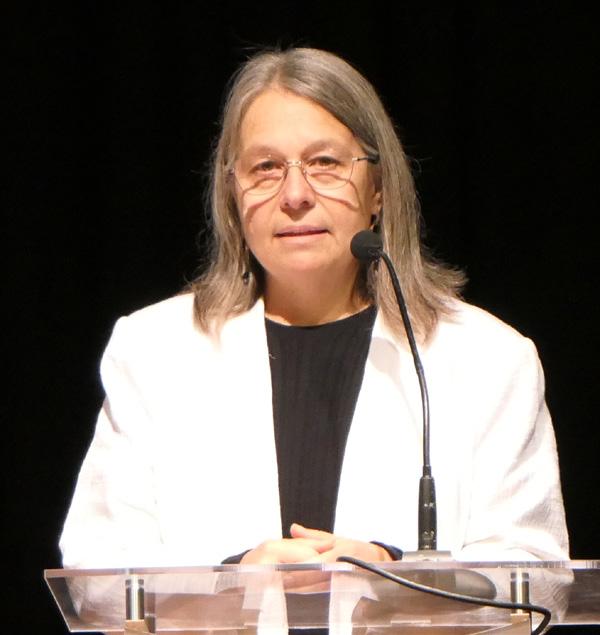
Hans Mülchi Bremer, a professor at the University of Chile and an accomplished journalist and filmmaker, visited the University of New Mexico in spring 2024. During his visit, he engaged in three significant events: a film presentation, a public talk, and a roundtable discussion with students. He also visited Dr. Lenny Ureña Valerio’s course, HIST 395.008/INTS 499.004: Rethinking Colonialism in the GermanSpeaking World, where he discussed his film Calafate: zoológicos Humanos
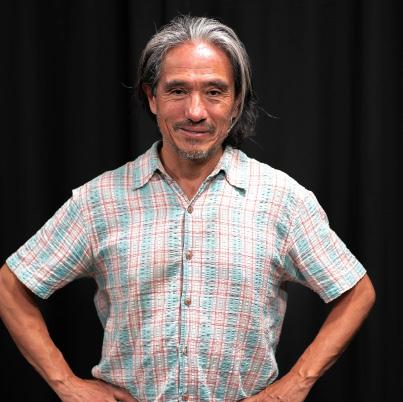
Mülchi Bremer is widely recognized for his films Calafate: zoológicos Humanos (2011) and Ocean Wings (2016). The film Calafate offers a critical examination of the nineteenth-century European practice of abducting Indigenous individuals from South America for display in zoos and public exhibits across major urban centers. During the production of Calafate, Mülchi Bremer and his team traced the remains of five abducted Kawésqar individuals to the University of Zurich. The film’s exposure in Chile catalyzed the repatriation of these remains, which were subsequently returned and entrusted to the Kawésqar community.
The events provided an essential platform for students, faculty, and community members to engage with Mülchi Bremer’s work and deepen their understanding of the historical and contemporary challenges faced by Chilean Indigenous communities. Additionally, they offered insight into the filmmaking process and facilitated discussions about the reception of his films within Chilean society.
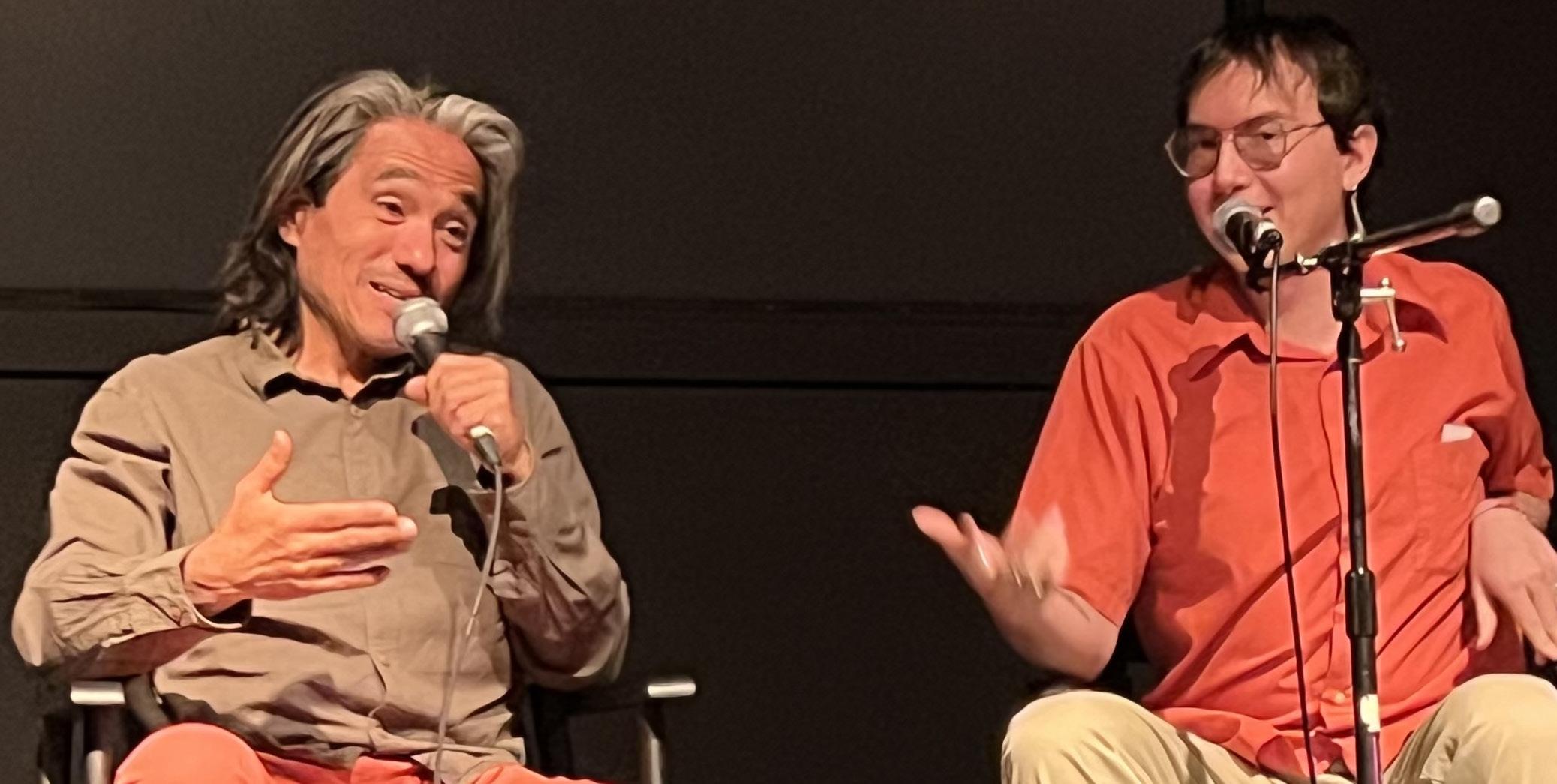
By Neider Devia Merchan
On April 25, 2024 the Latin American & Iberian Institute, in collaboration with the National Hispanic Cultural Center, organized a screening of Calafate: zoológicos Humanos. The event allowed those familiar with the subject to deepen their understanding while also engaging newcomers who sought to learn more. Prior to this event, I was not aware of the historical practice of human zoos in Europe that involved Indigenous peoples from the Americas.
My knowledge of the topic of abductions presented in the film was reduced to the aberrant practice of taking Native Americans and Africans to Europe to be sold and enslaved. This documentary recounts the research and efforts carried out to show the world an example of this aberrant practice that occurred at the end of the nineteenth century. Researchers and producers expose how during this period, these types of practices that denigrated
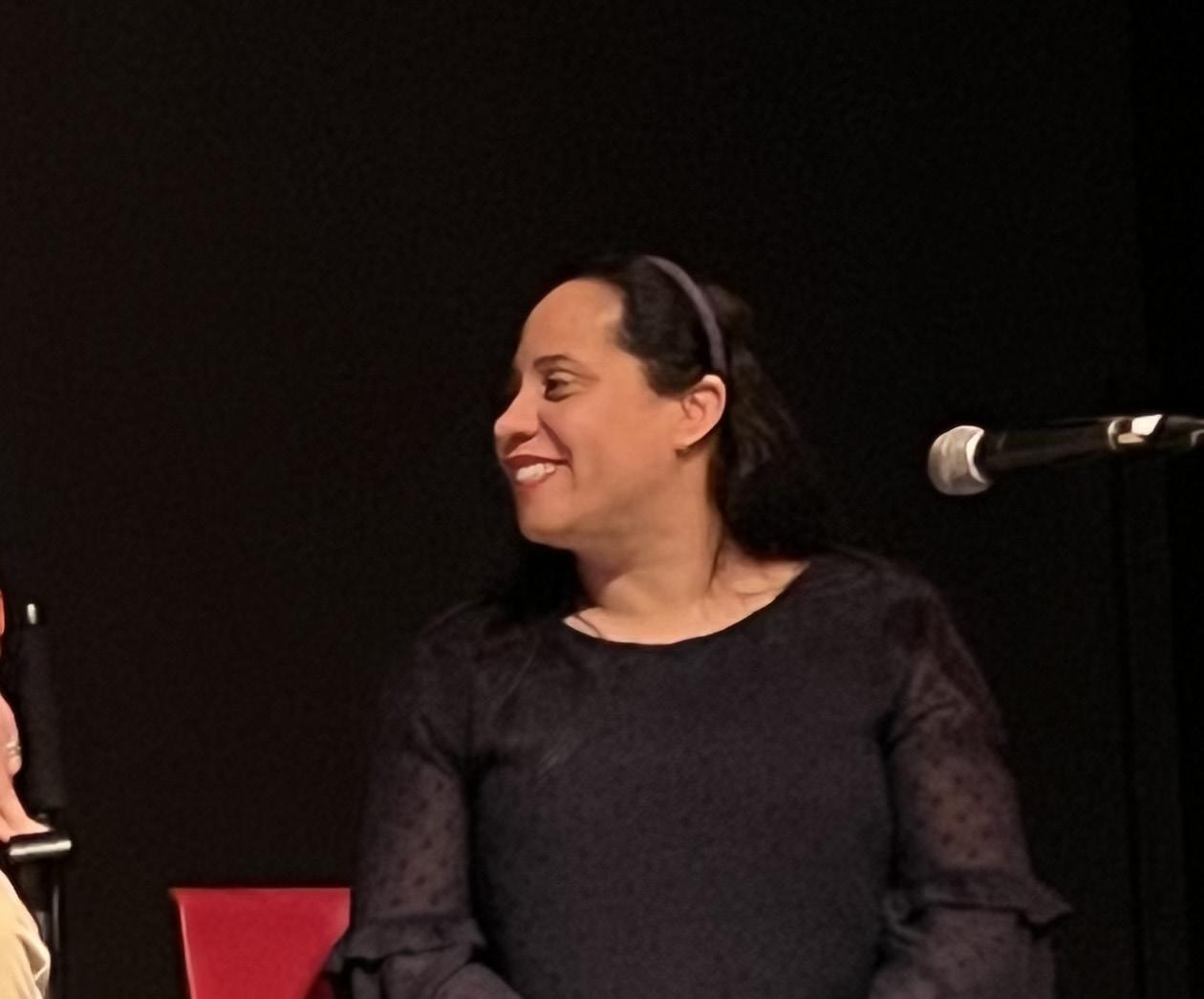
dignity, health, and life of these human beings were maintained and promoted. They also addressed how Indigenous peoples were kidnapped and taken to a place totally unknown to them, being mistreated, violated, and, after dying, leaving their bodies far from their place of origin.
The documentary also highlights the suffering experienced by the descendants of those affected. Until the film, the fate of the disappeared had remained unknown in Chile. Thanks to the filmmaker and research team, who reached out to the descendants and shared their findings, they were able to uncover the truth. This effort also led to the identification of the remains’ location, enabling their return to their place of origin.
The cases presented in the film can be analyzed from various perspectives and academic disciplines, racism being a salient theme. The execution of the human zoo practice involved multiple agents, including the captors and “businessmen” responsible for transporting Indigenous people to Europe, local authorities who permitted the establishment of human zoos, and, importantly, the public that attended and supported the exhibitions.
While the revelation of these cases may be shocking, it prompts reflection on the societal conditions that allowed such practices to occur during that period. We hope that disseminating this film and research will raise awareness in our society to prevent the repetition and promotion of similar practices now and in the future.
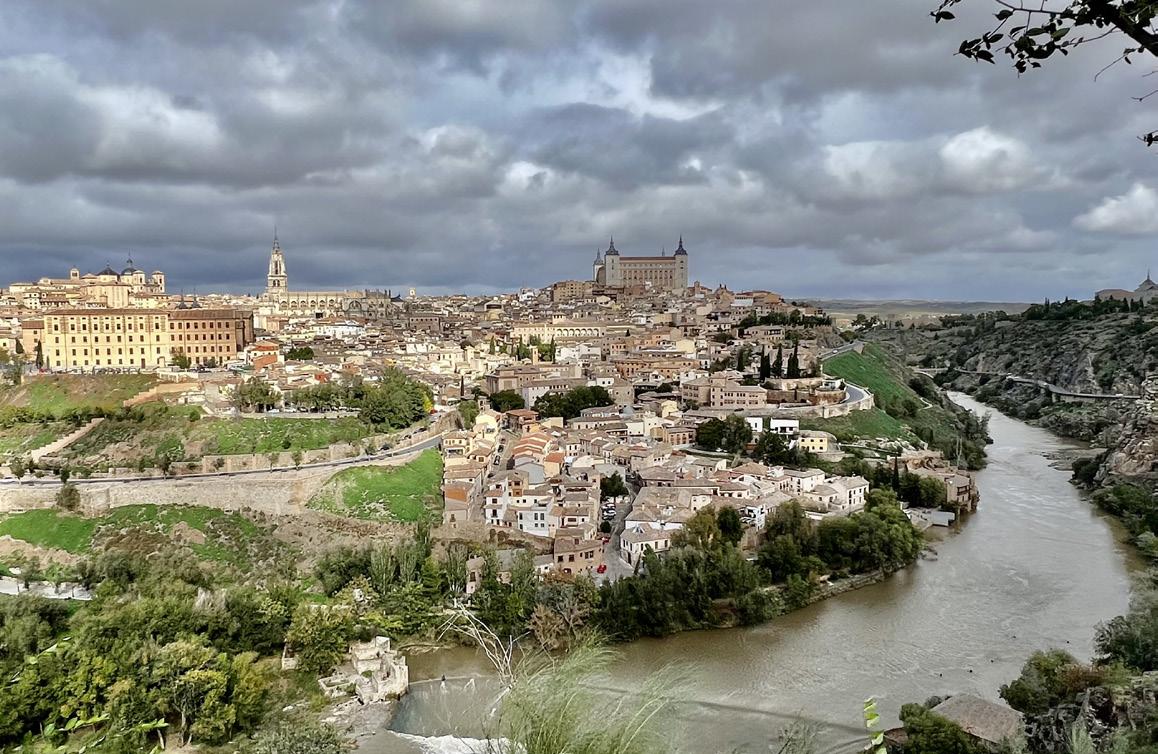
First Place, Professor Category, Michael Ryan, History
A panoramic view of the historic city of Toledo, with the Rio Tajo flowing by
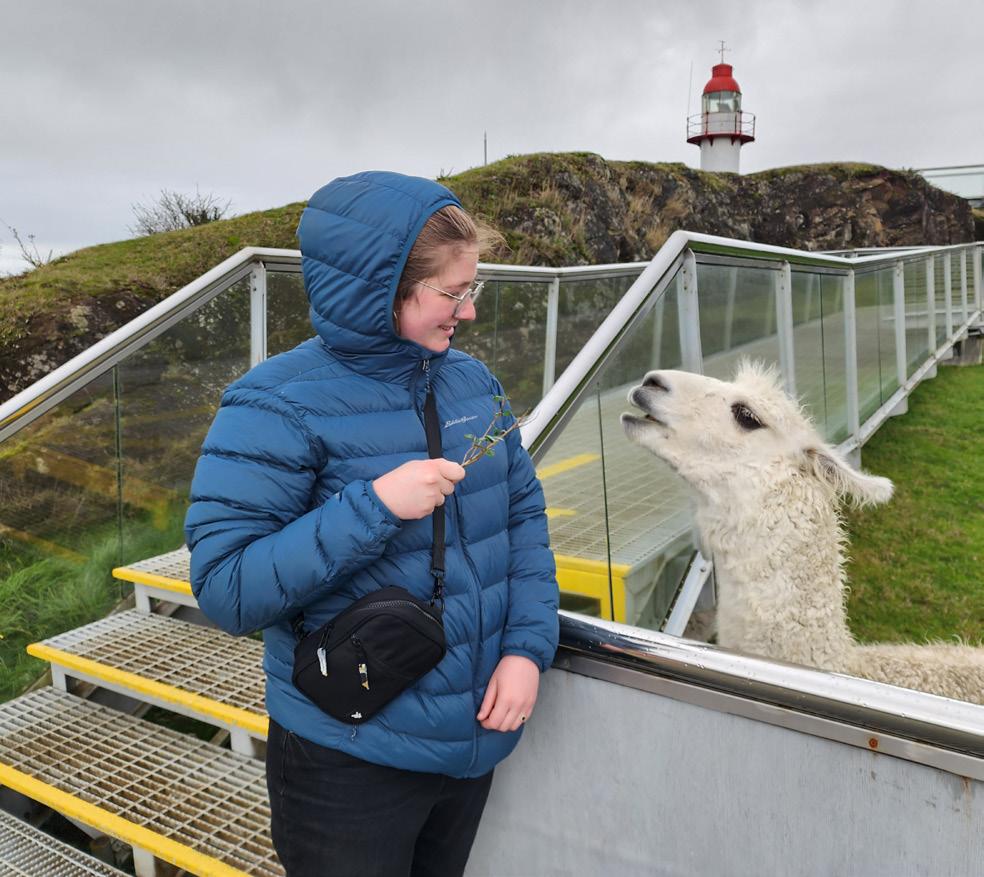
First Place, Student Category, Ana Sutulov, Biochemistry/Criminology BA
Feeding arrayán (a Chilean native tree) to Mito (the little llama) in Niebla Castle, Valdivia, Región de Los Ríos, Chile
The LAII is commited to expanding awareness, knowledge, and understanding of Latin America and Iberia among diverse constituents. As part of that commitment, we collaborate with K-12 educators, schools, and community organizations to create a stimulating and supportive environment to explore Latin America within their classrooms. Creating accessible curriculums, hosting professional development opportuities, and curating handson experiences and events for students are just some of the ways we enagage the K-12 community in Albuquerque and beyond.
This year the LAII was able to present at the La Cosecha Conference and the National Council for Social Studies Conference, highlighting the importance of accurate, bilingual, and engaging classroom content around Latin America.
This year’s successful collaborations included the annual Poesía Eres Tú contest with the Spanish Resource Center, an opportunity for children to honor bilingual poetry and Latin American authors, hands-on activities at the National Hispanic Cultural Center’s Día de los Muertos event, and an exploration of Latin American culture in the form of zines with Menaul School.
Pictured below is a group of middle schoolers at the Albuquerque Museum’s Dictators and Disappeared exhibit, where the LAII led a visual analysis workshop to better understand the Chilean dictatorship and its repercussions.
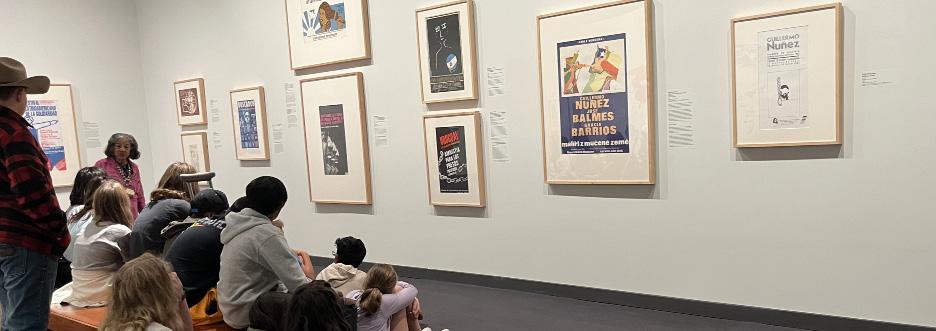
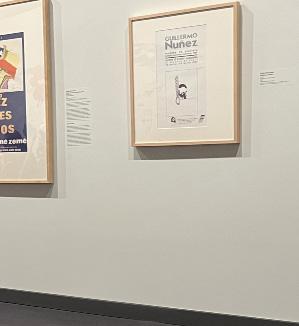
Teaching literacy serves as a compelling means to introduce culturally relevant and informed content into K-12 classrooms. Our programs emphasize the promotion of literacy as a foundational element. Through the Vamos a Leer: Teaching Latin America through Literacy blog, we foster resource-sharing and discussion on integrating culturally relevant content into the classroom. We regularly publish children’s book reviews, highlight young adult titles, provide curated booklists, and connect our readers to the broader, growing movement advocating for diverse literature in education.
This year, our K-12 team conducted an extensive review of children’s books in Spanish, Portuguese, English, and bilingual formats, highlighting works by and about Latin American authors that address critical environmental and social issues relevant to the region. Notable titles reviewed include:
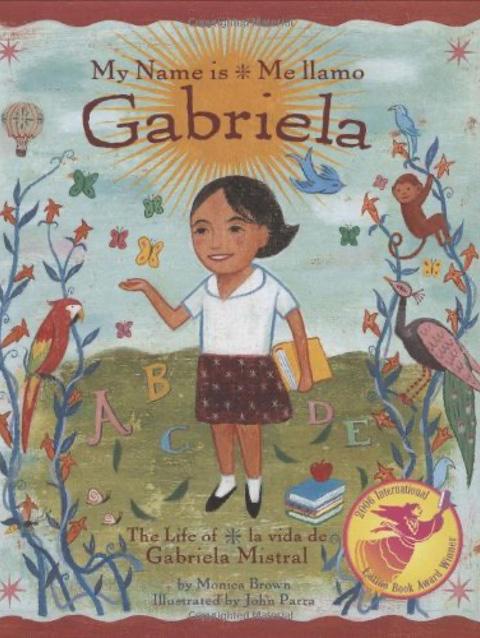
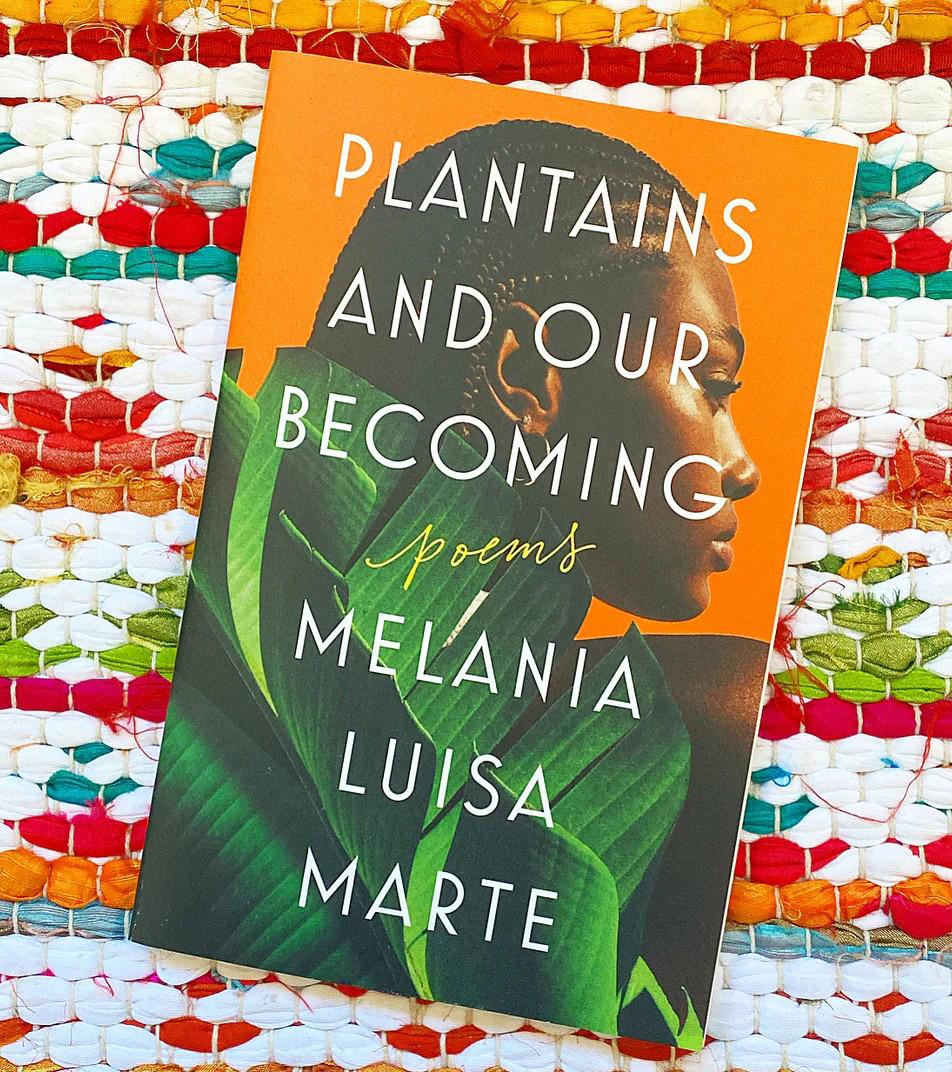
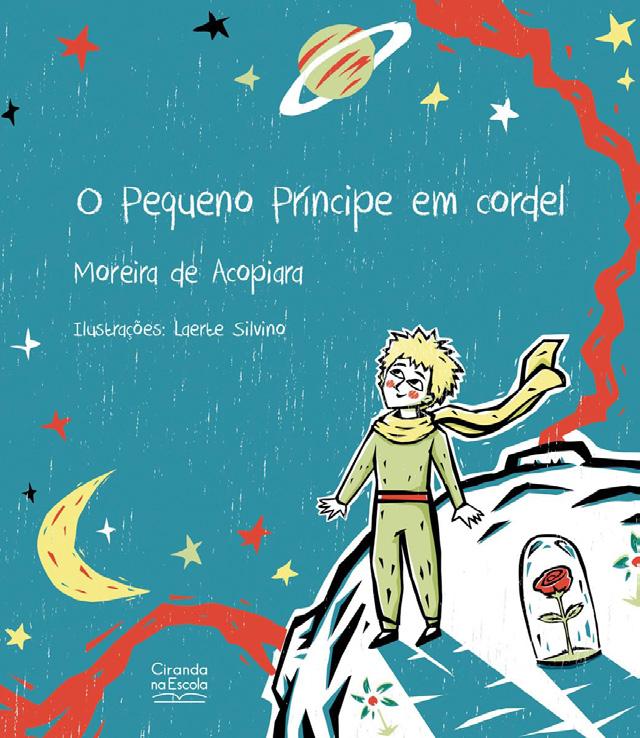
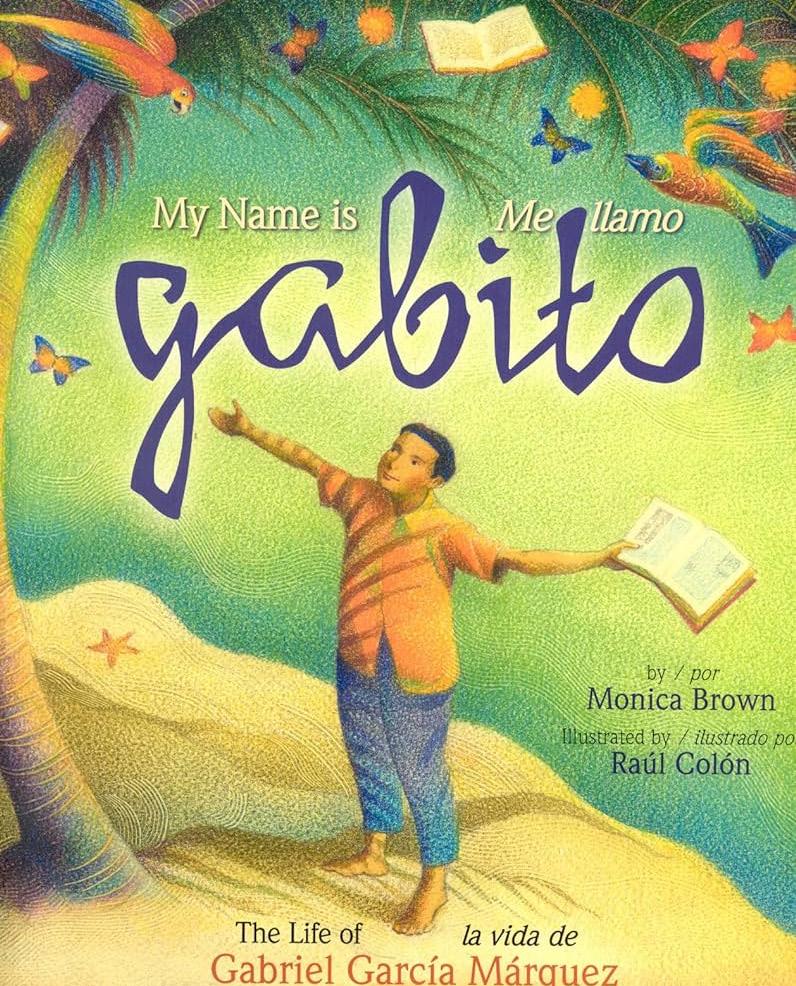
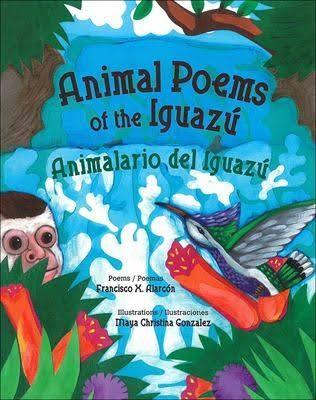
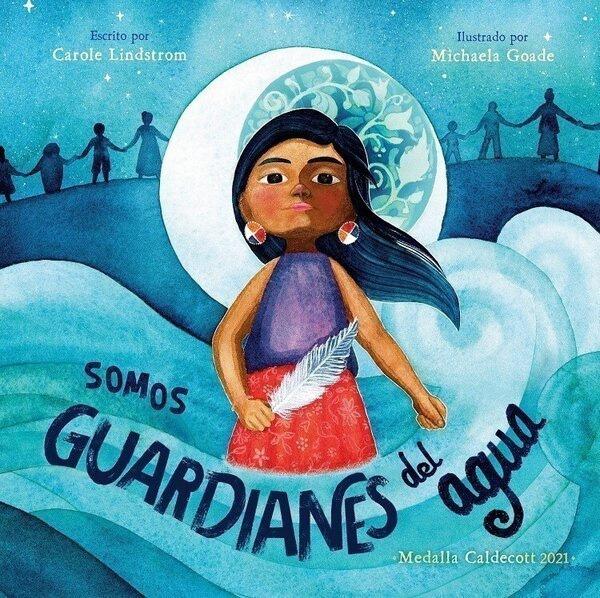
Miguel Sabol, 2023 MALAS graduate, was awarded an English Teaching Assistantship Fulbright in Brazil, which began in March 2024. A recipient of the Critical Language Scholarship (CLS) and more recently the Foreign Language and Area Studies (FLAS) Fellowship, Miguel is passionate about language, and language education.
What led you to the Master’s of Latin American Studies Program at UNM?
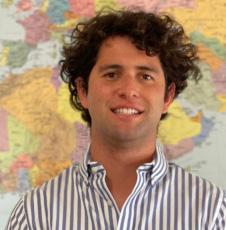
I did my undergrad at UNM. I double majored in International Studies and Spanish, with a minor in Portuguese and Communications and Journalism. I didn’t even know Latin American Studies existed. It was a Portuguese professor who had done her master’s at the LAII and said MALAS is a great master’s program because it is interdisciplinary. The first thing that surprised me was the amount of classes; there were so many Latin American studies classes across campus. The MALAS program ended up being a really good fit for my undergrad in International Studies and my passion for interdisciplinary education.
How does the MALAS program relate to your Fulbright?
I started out taking Portuguese for Spanish speakers and ever since, I have wanted to go to Brazil. In the Portuguese classes we started getting into the culture, the facts; like Brazil being the eighth largest economy, and one of the largest countries in the world. It was like the literal Pandora’s box opening up the history of Brazil and it just blew my mind! Going into my master’s, I knew I wanted to focus on Brazil. I even wrote my comps on Brazilian culture and sociopolitical movements. So this is going to be a great opportunity to put my skills to use. I will be teaching for nine months at the Universidade Federal da Paraíba which is in the Northeast.
What are you most looking forward to during your Fulbright?
I’m excited about connecting with people, it will help to get a deeper understanding of their culture and the Portuguese language. I’ll be teaching English but still, I’m excited to get a broader sense of what Brazil is like today.
Looking forward, what are your career goals after Fulbright?
One of my career goals is to work in the foreign service. The skills I gained in MALAS will help me in any career I pursue, really. Even at my current job at the Cervantes Institute, I’m able to juggle and keep track of several things at once; the event planning, accounting, organization of the office, and cultural programs. I think that is from my interdiscipinary background. MALAS also helped me to think critically about a variety of things.
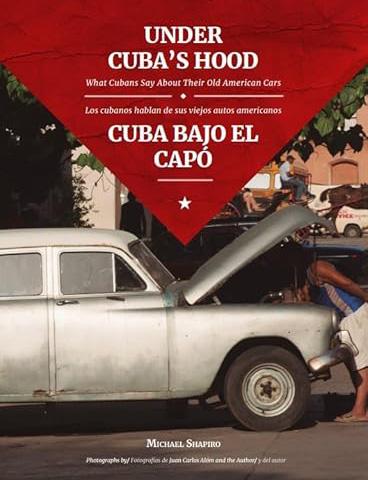
Under Cuba’s Hood: What Cubans Say About Their Old American Cars
Michael Shapiro (MALAS 1985) ECOVAL EDICIONES, 2020
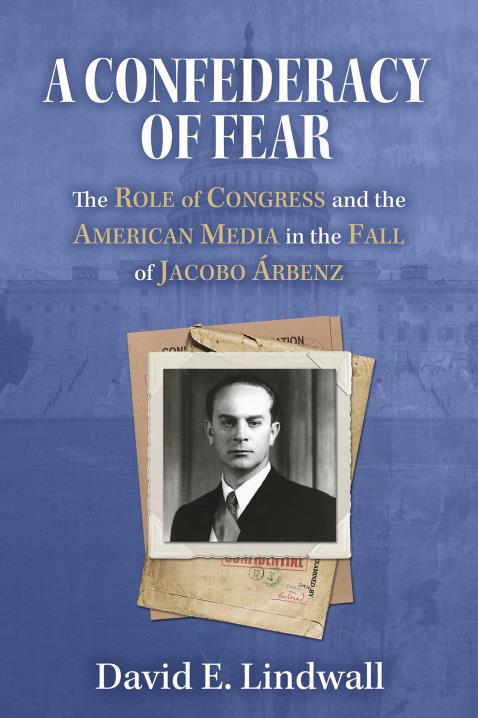
A Confederacy of Fear: The Role of Congress and the American Media in the Fall of Jacobo Árbenz
David E. Lindwall, (MALAS 2021) BookBaby, 2023
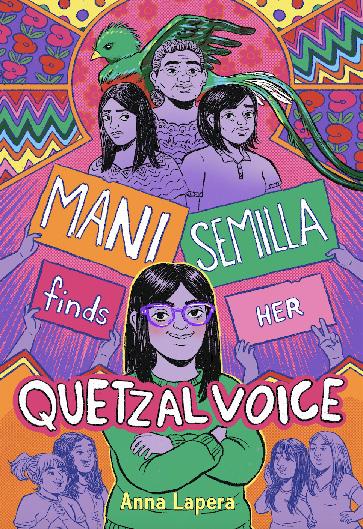
Mani Semilla Finds Her Quetzal Voice
Anna Lapera (MALAS/CRP 2011) Levine Querido, 2024
Our alumni are an integral part of the Latin American & Iberian Institute. We are committed to cultivating a strong network of scholars and professionals that connects our current students with former ones. If you are an alum, we encourage you to remain engaged with the Institute and contribute to the development of the next generation of leaders in our field. Please feel free to share updates on your publications, research, awards, or internship opportunities by reaching out to us at laiioutreach@unm.edu. We look forward to hearing from you!
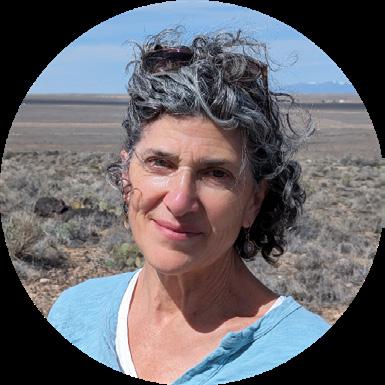
Liz Castillo Administrative Assistant III
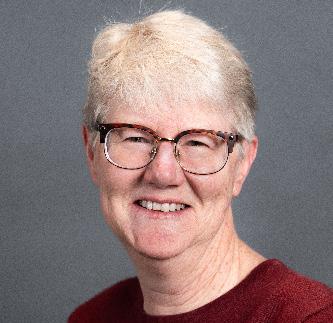
Kathryn McKnight Associate Director for Academic Programs
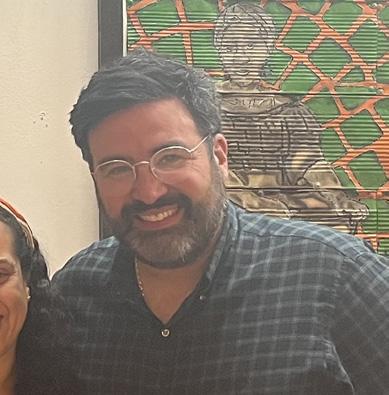
Rodrigo Gechem Unit Administrator
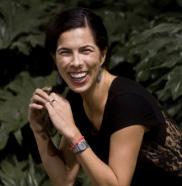
Mariana Sabino Salazar Director of Undergraduate Studies, Lecturer III
Lesca Fernanda González, Office Assistant
Savanah Ezekiel-Fuller, Office Assistant
Ryuichiro Morgan, Media Assistant
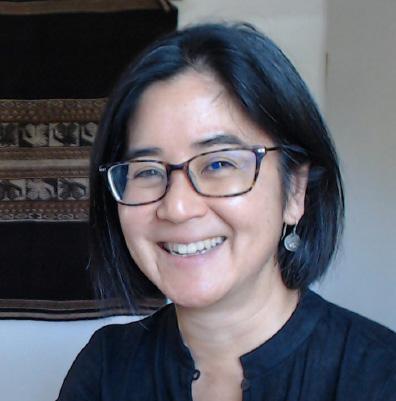
Frances Hayashida Director
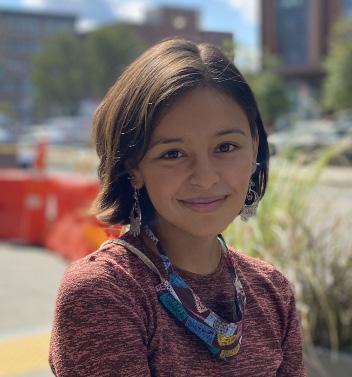
Daniela Sánchez Communication and Outreach Specialist
Guadalupe Avilés, Humanities Now! Mellon Initiative
Neider Devia Merchan, Spanish TA
Marsella Macias, Communications
Leonel Martín, LTAM 504
Daniela Galvis Garzón, Library
Madeline Griffin, K-12
Kaitlin Lewis, Evaluation
Jéssica Pereira Dos Santos, K-12
Gisselle Salgado, Library
Edber Dzidz Yam, Yucatec Maya TA
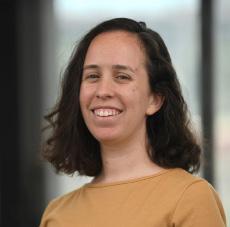
Erica Henderson Senior Academic Advisor
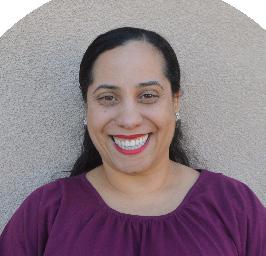
Lenny Ureña Valerio Associate Director for Program Development
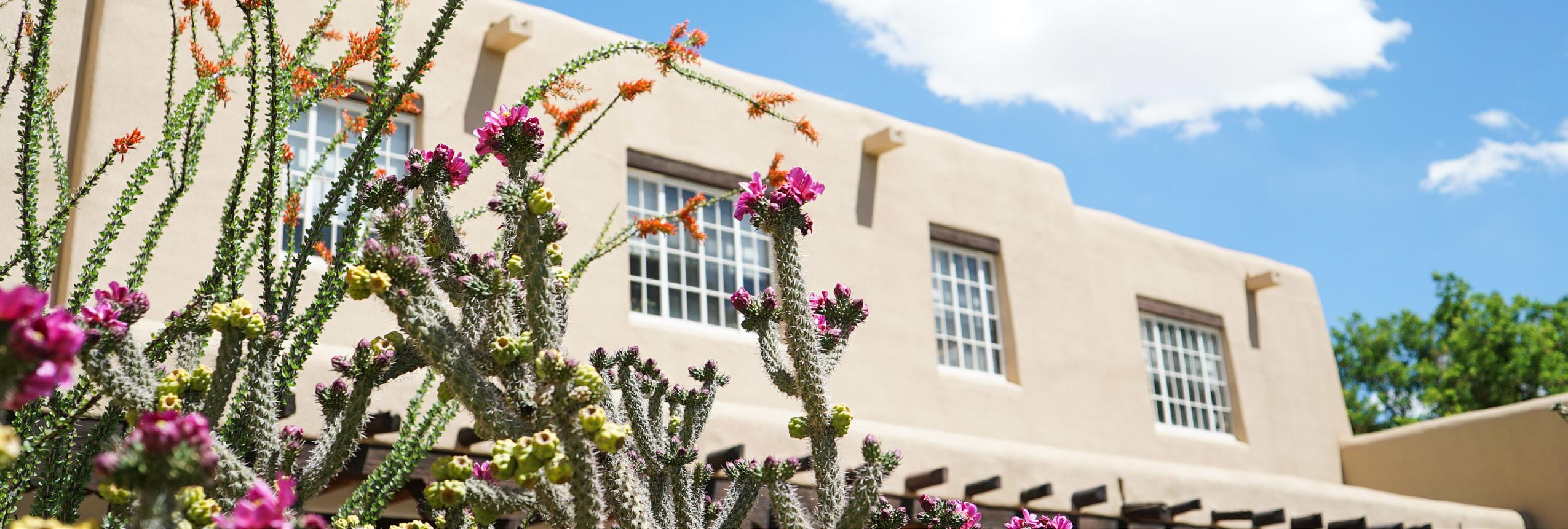
We are pleased to announce that the Latin American & Iberian Institute has received an endowed bequest gift, estimated at $100,000, from Russ Davidson to establish the JoaquÍn Ortega Founder’s Endowment for US-Latin American Dialogue. This fund will facilitate annual visits to UNM by one or more Latin American scholars, professionals, writers, artists, performers, or public figures.
Russ Davidson is Emeritus Curator of Latin American & Iberian Collections and Emeritus Professor of Librarianship at the University of New Mexico. He is the author and translator of numerous works in Latin American bibliography, history, and ethnohistory. His latest project includes Dictators and the Disappeared: Democracy Lost and Restored, a 2023-2024 exhibition in the Albuquerque Museum co-curated with Leslie Kim. Among his recent publications is The Investigative Brigade: Hunting Human Rights Criminals in Post-Pinochet Chile (University of North Carolina Press), a translation of Pascale Bonnefoy Miralles’ Cazar el cazador: Detectives tras criminales de lesa humanidad.
Additionally, the Guadalupe Institute Western Hemisphere Center, a local non-profit dedicated to justice through advocacy, education, and outreach, has provided a generous recurring contribution to support events that foster hemispheric dialogue, with a particular emphasis on engaging scholars from Latin America.
We extend our heartfelt thanks to these donors for their generous support!
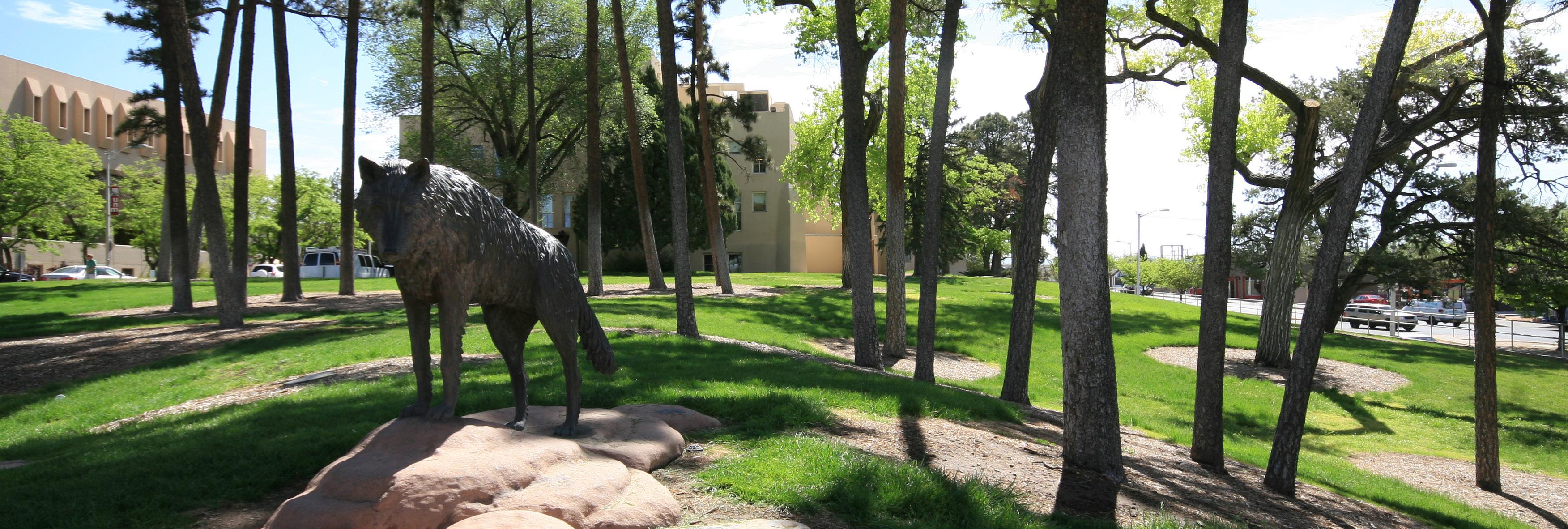
Whether the LAII helped you finish your dissertation, launch your career, conduct research, or simply strengthen your interest in Latin America and Iberia, we value our alumni and friends and want to continue to support future students and educational and cultural events.
To learn more about our funds and to donate, visit laii.unm.edu/give-now.html or contact the LAII director, Frances Hayashida, at fmh@unm.edu

